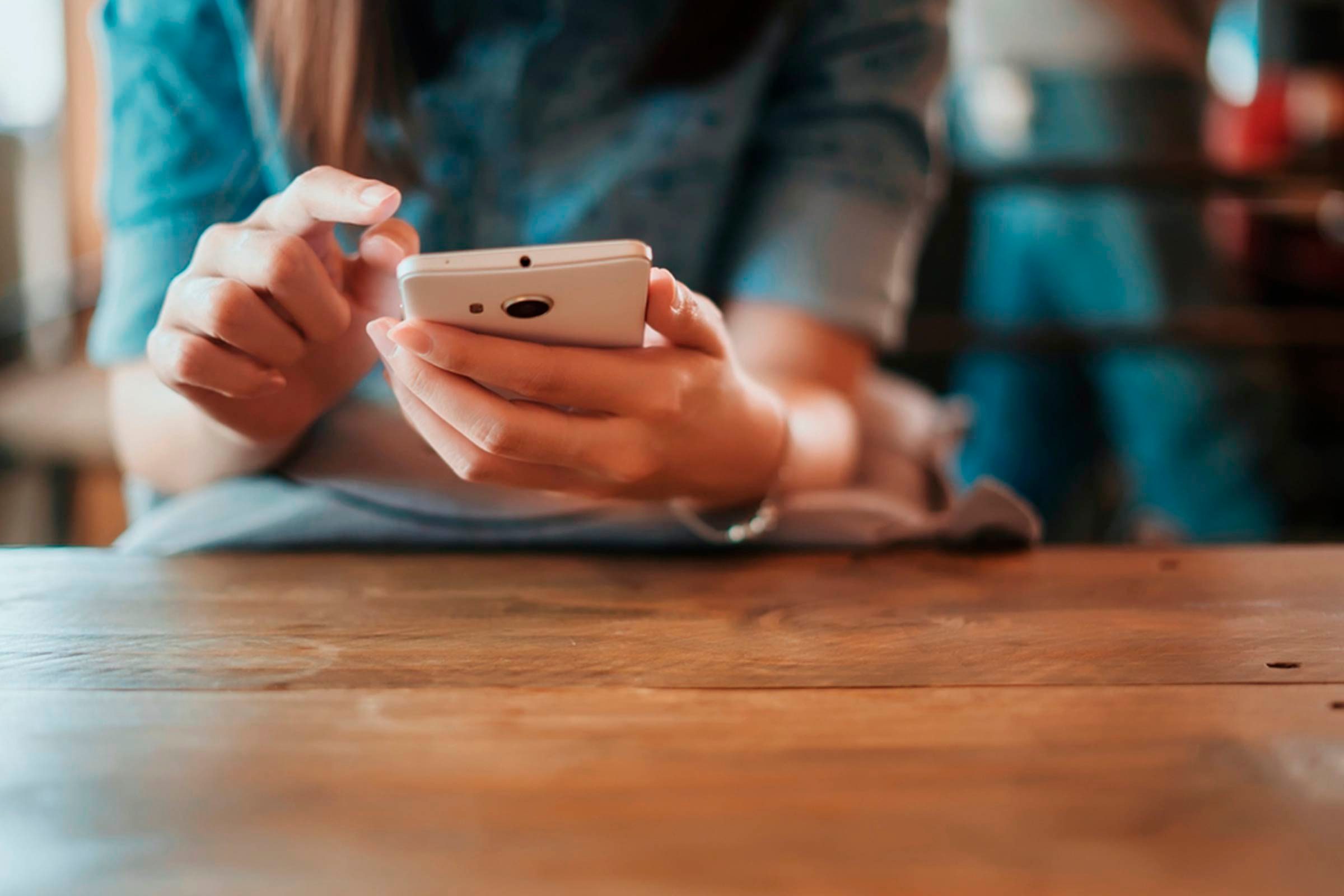
Limit screen time
Smartphones, laptops, and other devices are a big part of our lives today, and while they help us do everything from working to stay connected to loved ones to shopping, they’re not doing anything to protect your eyesight. Staring at the screen for extended periods of time can cause computer vision syndrome, which is marked by eye strain, blurred vision, headaches, and dry eyes. “Take frequent breaks during the day by way of the 20-20-20 rule,” says Morgan Statt, a Health & Safety Advocate at consumersafety.org in Syracuse, New York. “Every 20 minutes, look away at something else for 20 seconds that’s at least 20 feet away,” to give your eyes a break from using your near vision.
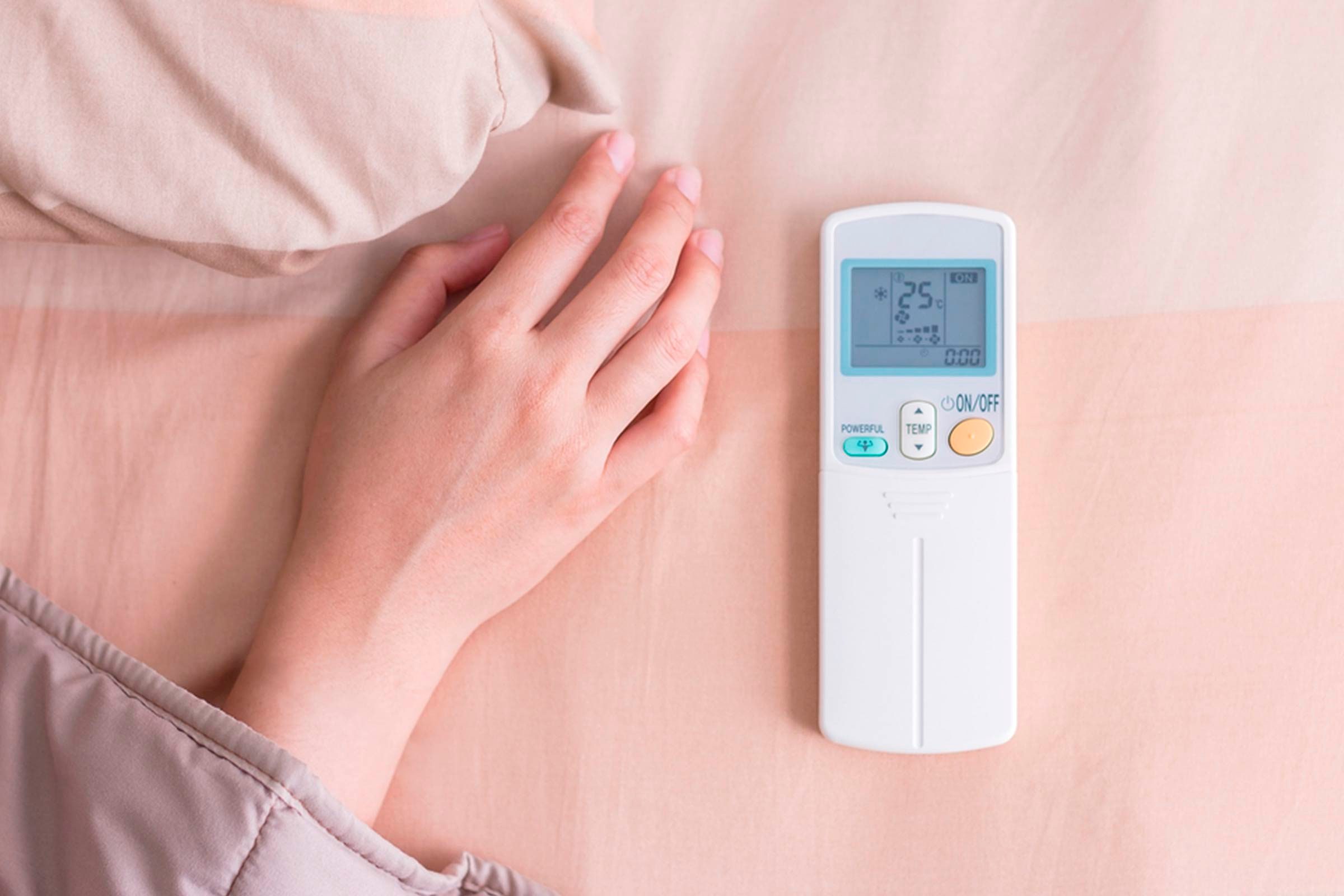
Face the A/C away from your eyes
“Blasting your A/C directly on your face may feel good on a hot summer day, but it can wreak havoc on your eyes,” Statt says. The dry air zaps away natural moisture on the surface of your eyes. To protect eyesight, she says, point the air vents away from your face.
Learn the reasons you have watery eyes.
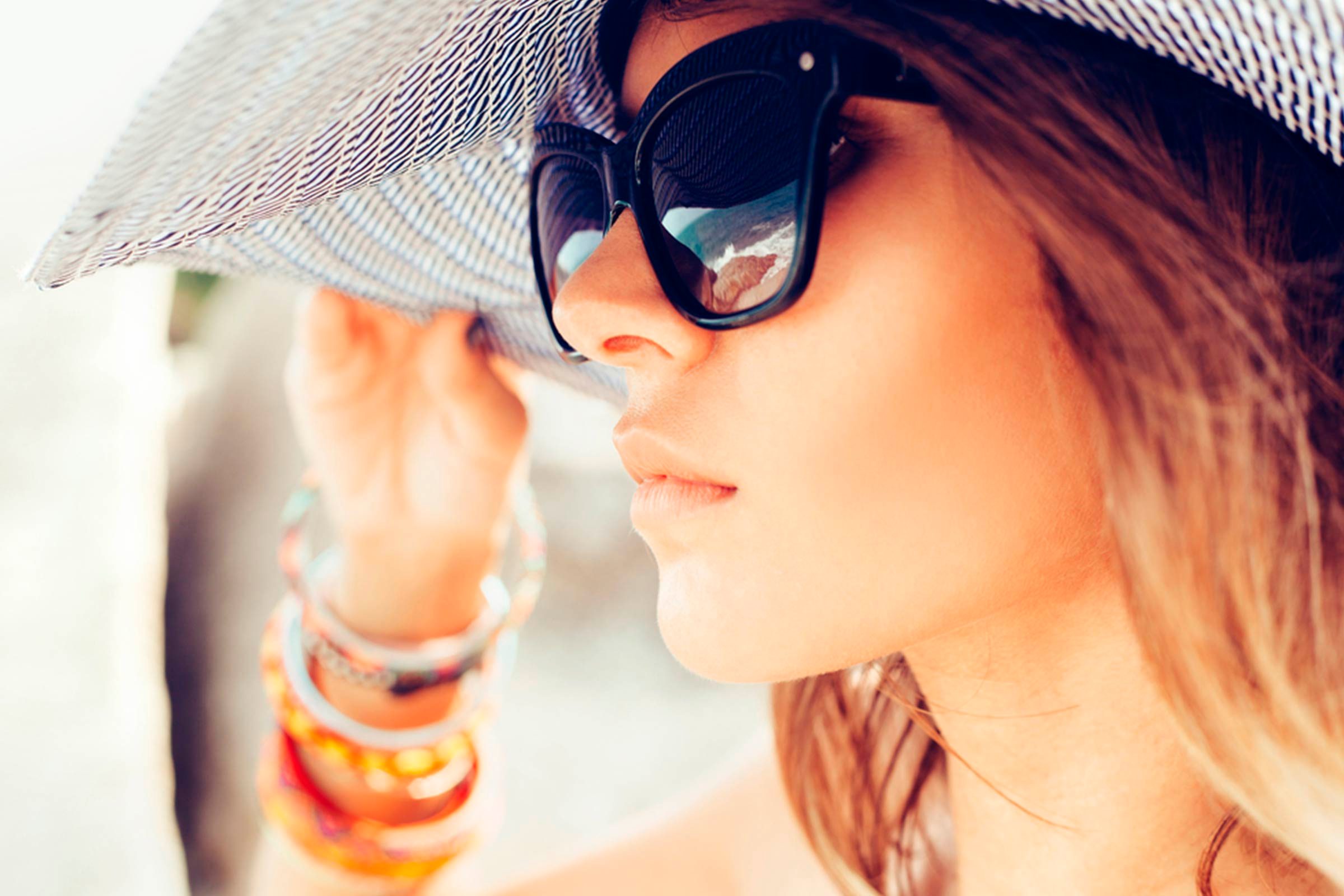
Seek shades
“Choose sunglasses that protect against 100 per cent of the sun’s ultraviolet A and ultraviolet B rays, which can cause all sorts of eye damage and problems,” says Vincent Hau, MD, an ophthalmologist at Kaiser Permanente in Riverside, California. Your shades don’t have to cost a fortune either. “More expensive doesn’t necessarily mean better protection,” he says. “You can get drugstore sunglasses with just as good of protection or better than designer ones.”
Don’t ignore these signs you need new glasses.

Wear them even on cloudy days
One of the common myths about sunglasses is that you don’t need them if it isn’t sunny. “Even on a cloudy day, UV lights still shine through and will hit and damage your eyes,” Dr. Hau says. Think of your sunglasses the same way that you think about your sunscreen, and never leave home unprotected.
Here are the silent signs you might have eye cataracts.
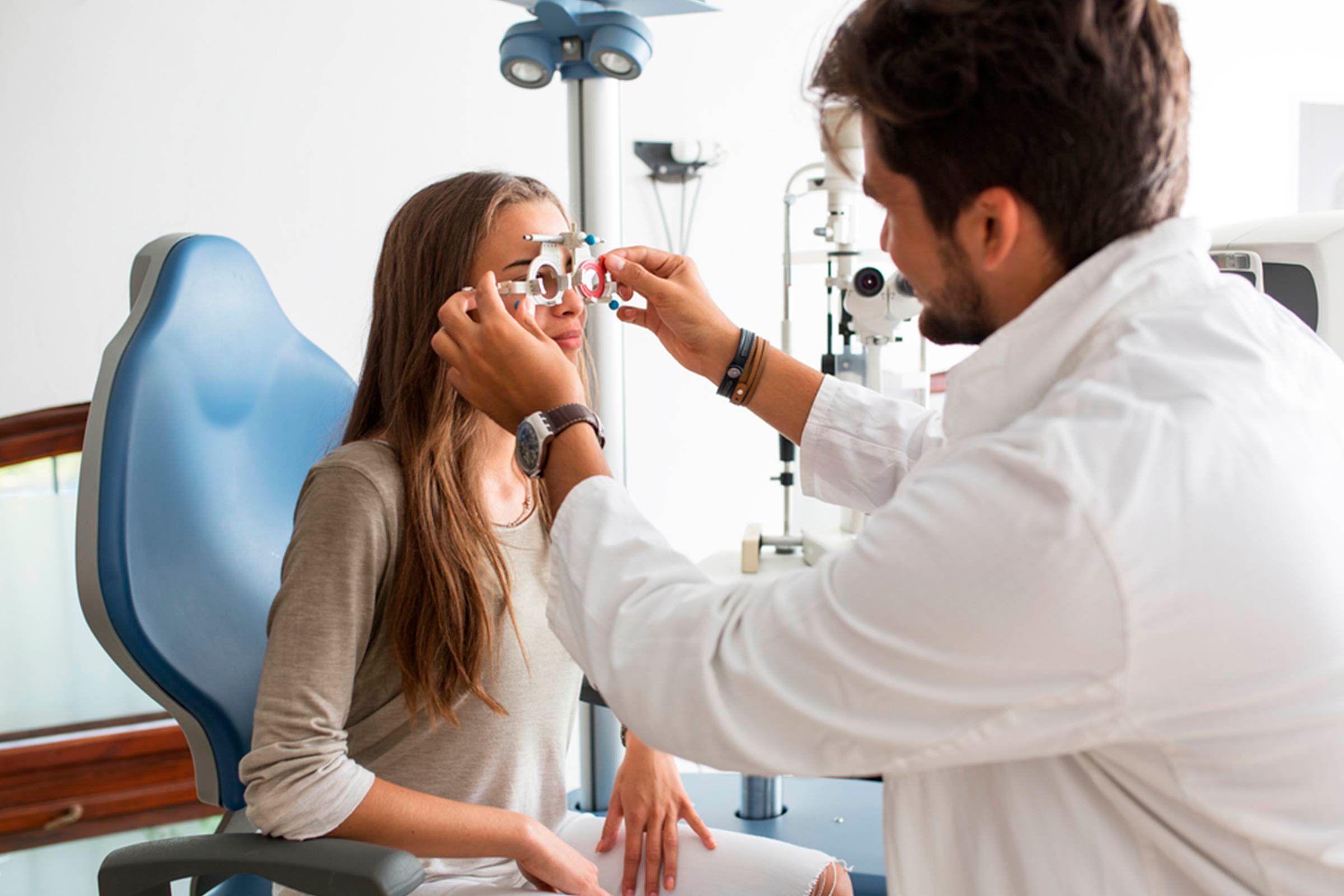
Get regular eye exams even if you don’t wear glasses
Wondering how to improve eyesight? “Visit your eye doctor once a year for a comprehensive dilated eye exam,” says Matthew Alpert, OD, an optometrist with practices in Los Angeles. When your eyes are dilated, the doctor can see the back of the eyes and examine them for any signs of damage or disease. “Comprehensive eye exams aren’t just about the eyes. They can also help detect chronic conditions such as high blood pressure and diabetes.” Schedule your exam today.
Look out for the 12 signs you need to visit an eye doctor.
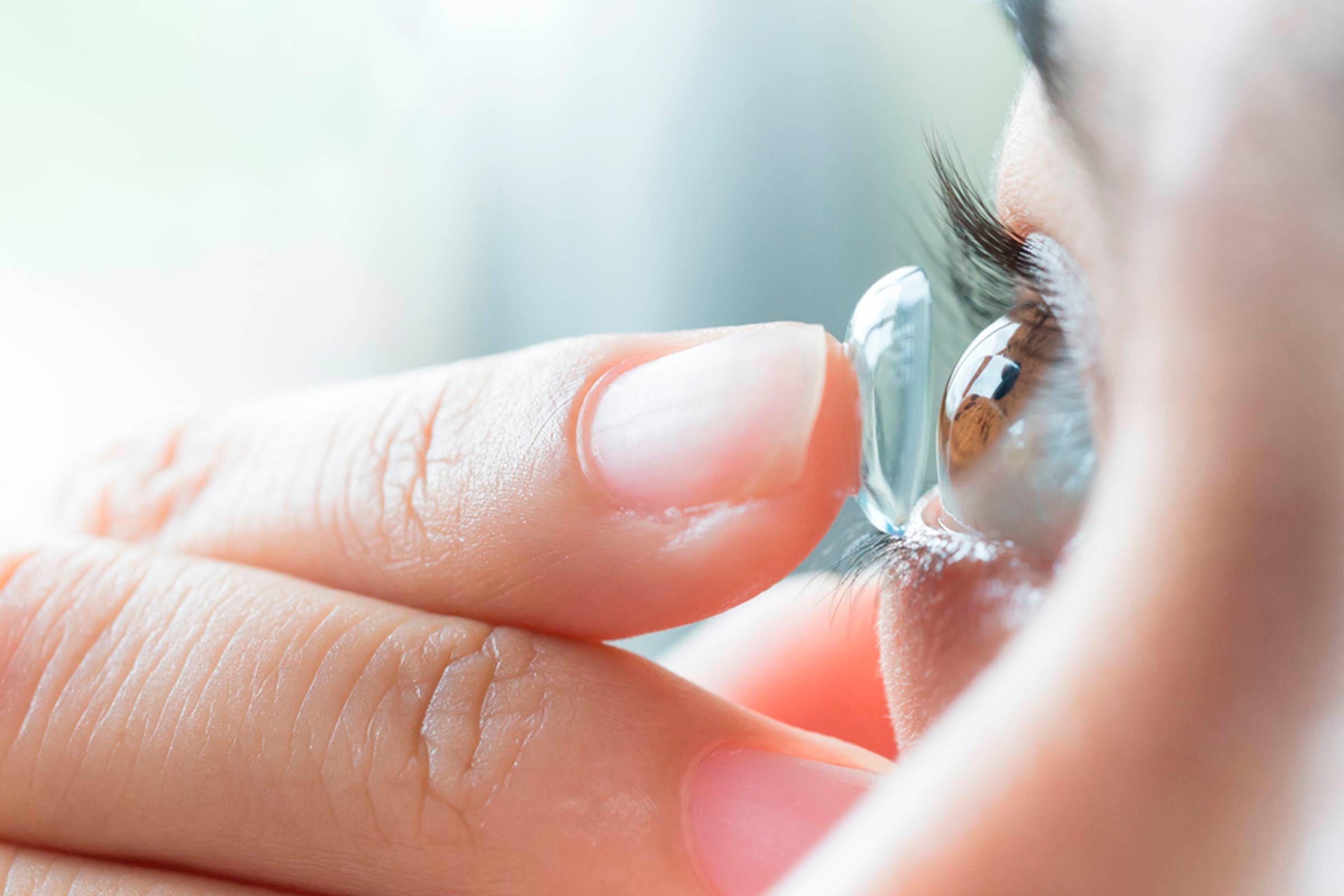
Don’t sleep in your contact lenses
As tempting as it may be after a rough night, South Florida Ophthalmologist Inna Ozerov, MD, cautions against snoozing in your contacts—even when the brand says it is OK. “The contact lens surface may allow micro-organisms to adhere to your eye, therefore increasing the likelihood of infection,” she says. Taking your lenses out before bed also gives your eyes more contact with oxygen, which decreases the risk of infection.
Try these easy tricks to perk up tired eyes.
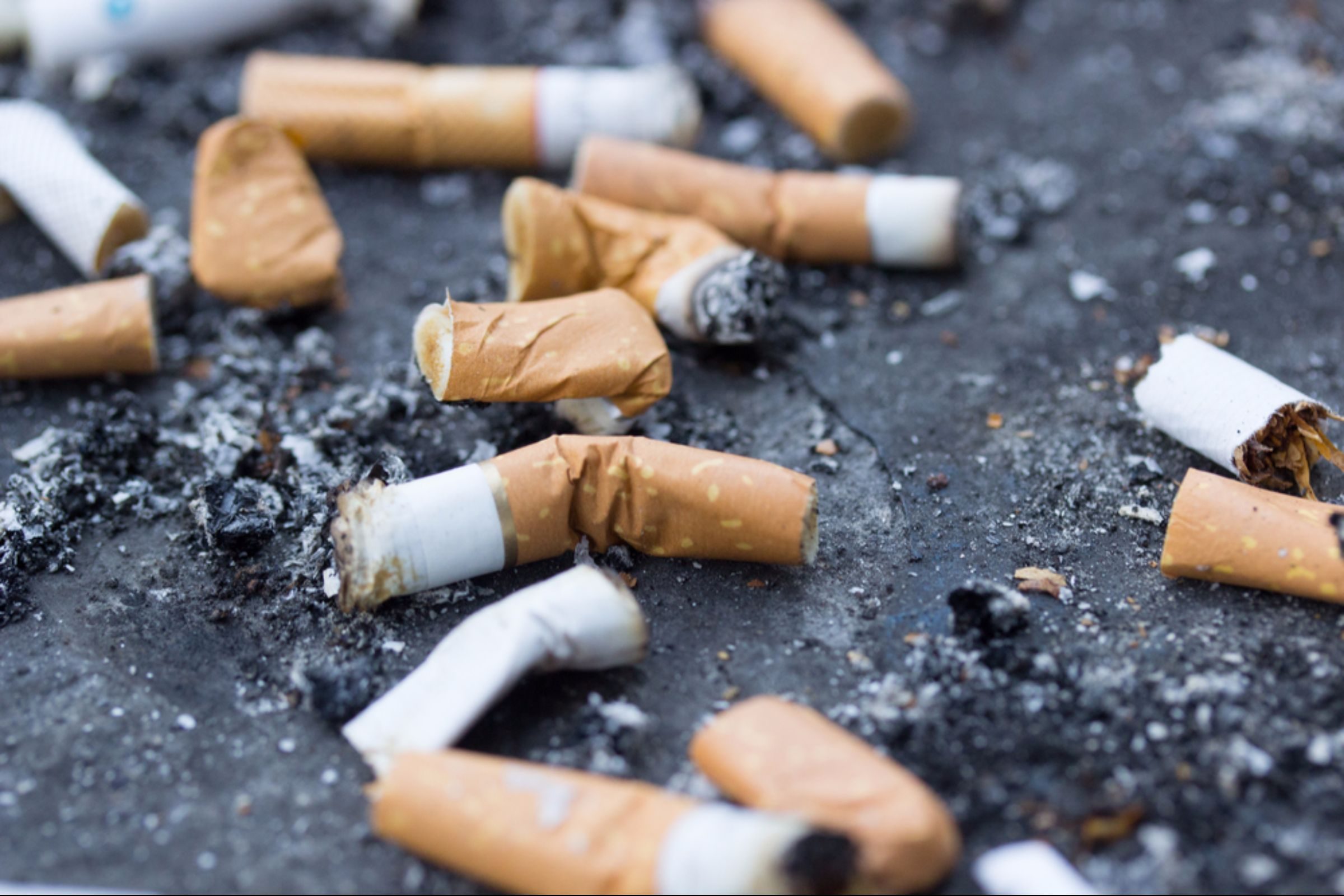
Quit smoking
In addition to all of the other health ills associated with smoking, “tobacco is extremely toxic to the cells of the retina, a thin layer of tissue lining the back of the eye, and significantly increases the risk of developing macular degeneration, which may lead to blindness,” Dr. Ozerov says. Macular degeneration occurs when the central part of the retina (the macula) deteriorates.
Check out the best ways to quit smoking.
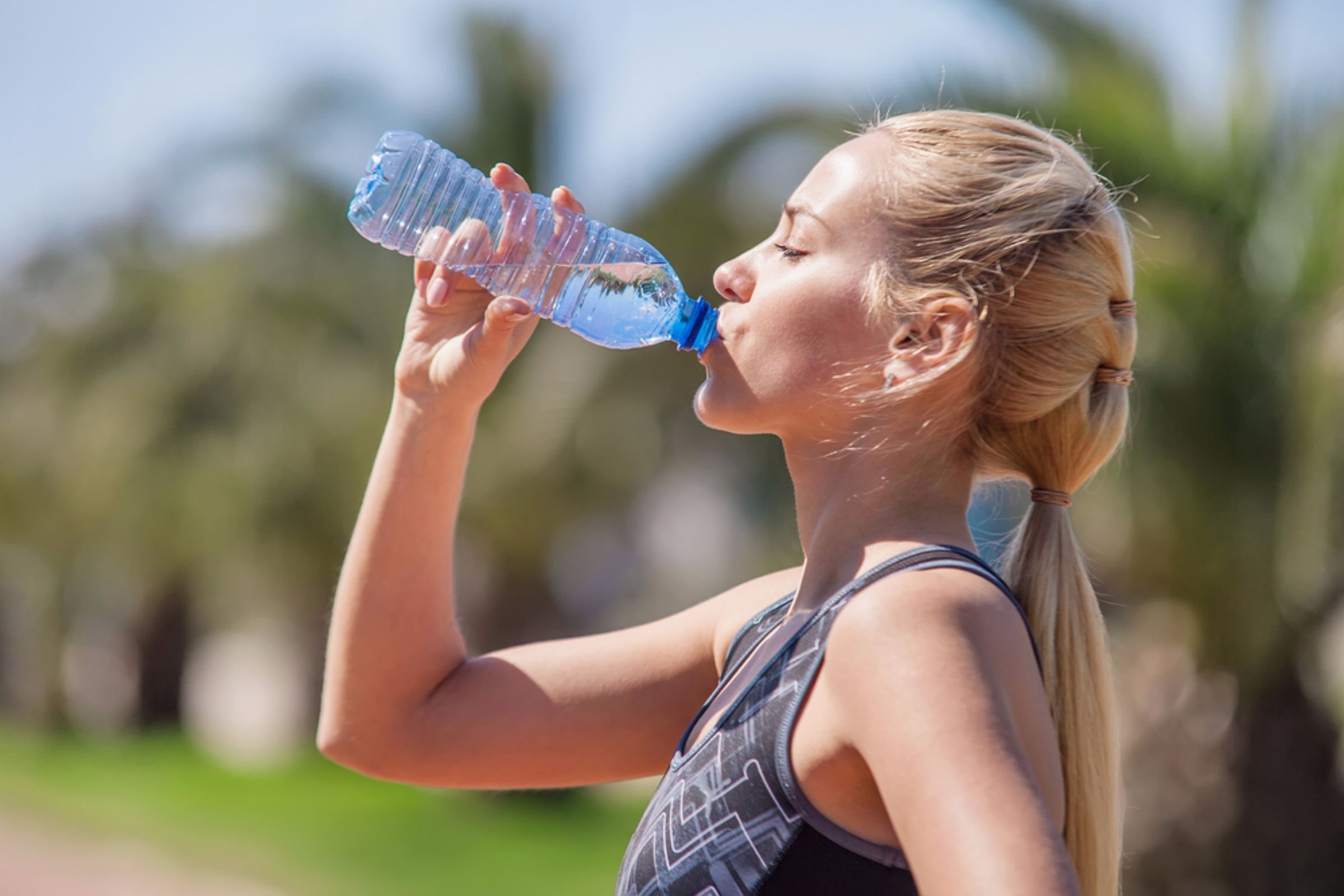
Drink up before takeoff
Dehydration worsens dry eye symptoms, so if you’re travelling by air, drink lots of water before and during a flight to protect eyesight, Alpert says. “It is fine to enjoy alcoholic and caffeinated drinks as long as you drink extra water to make up for fluid loss,” he adds. Also, the overhead air conditioning tends to blow dry air directly into your eyes, so close the vents before takeoff.
These are the best and worst drinks to keep you hydrated.
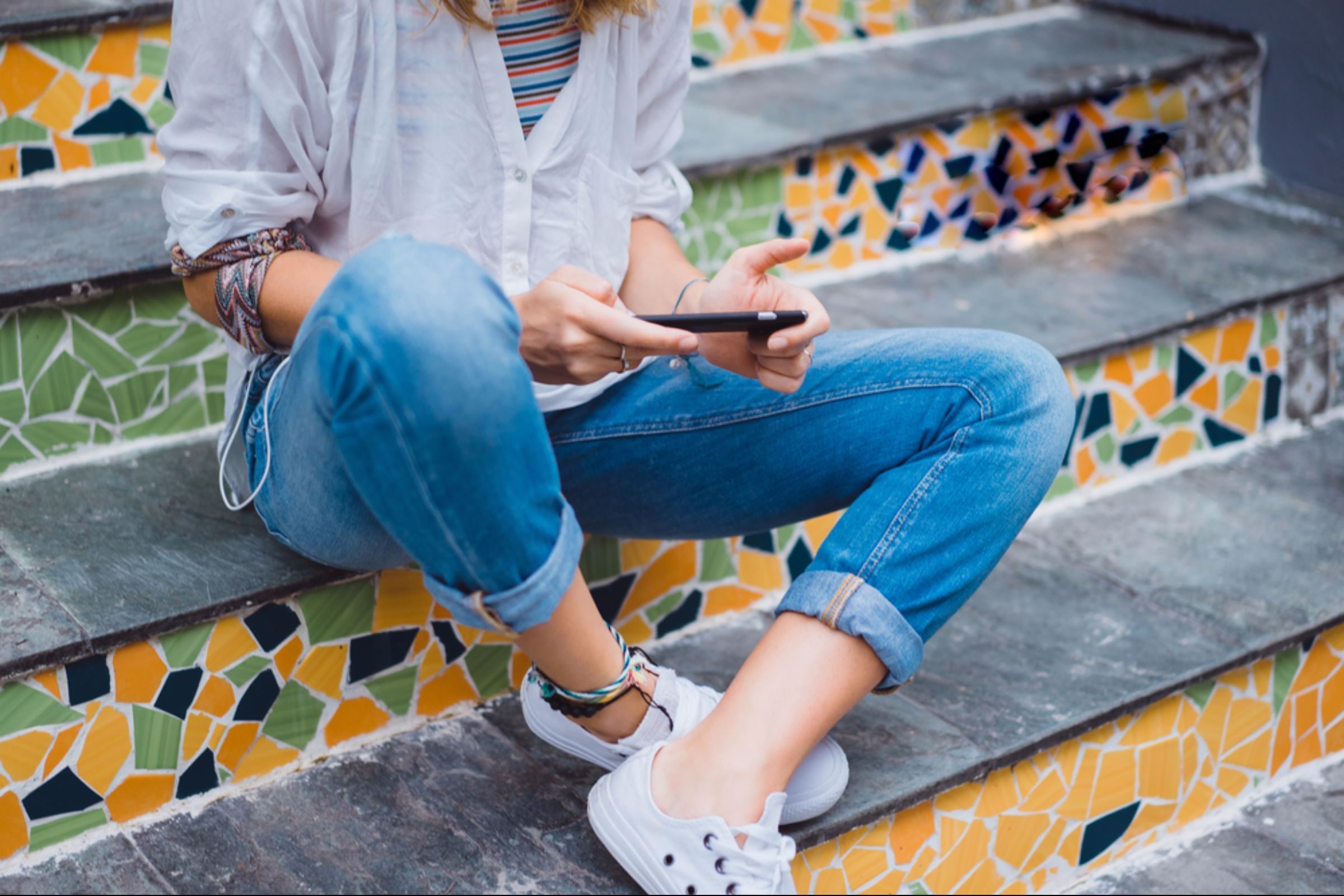
Keep your distance
“Find a comfortable working distance from your screen,” Alpert urges. “This is especially important for children, since the intensity of light increases exponentially the closer our eyes are to light sources.” The blue light emitted by our go-to digital devices can raise our risk of developing macular degeneration and may also cause eye strain. Investing in a blue light filter can also help protect your vision.
Follow these eye care tips from optometrists.
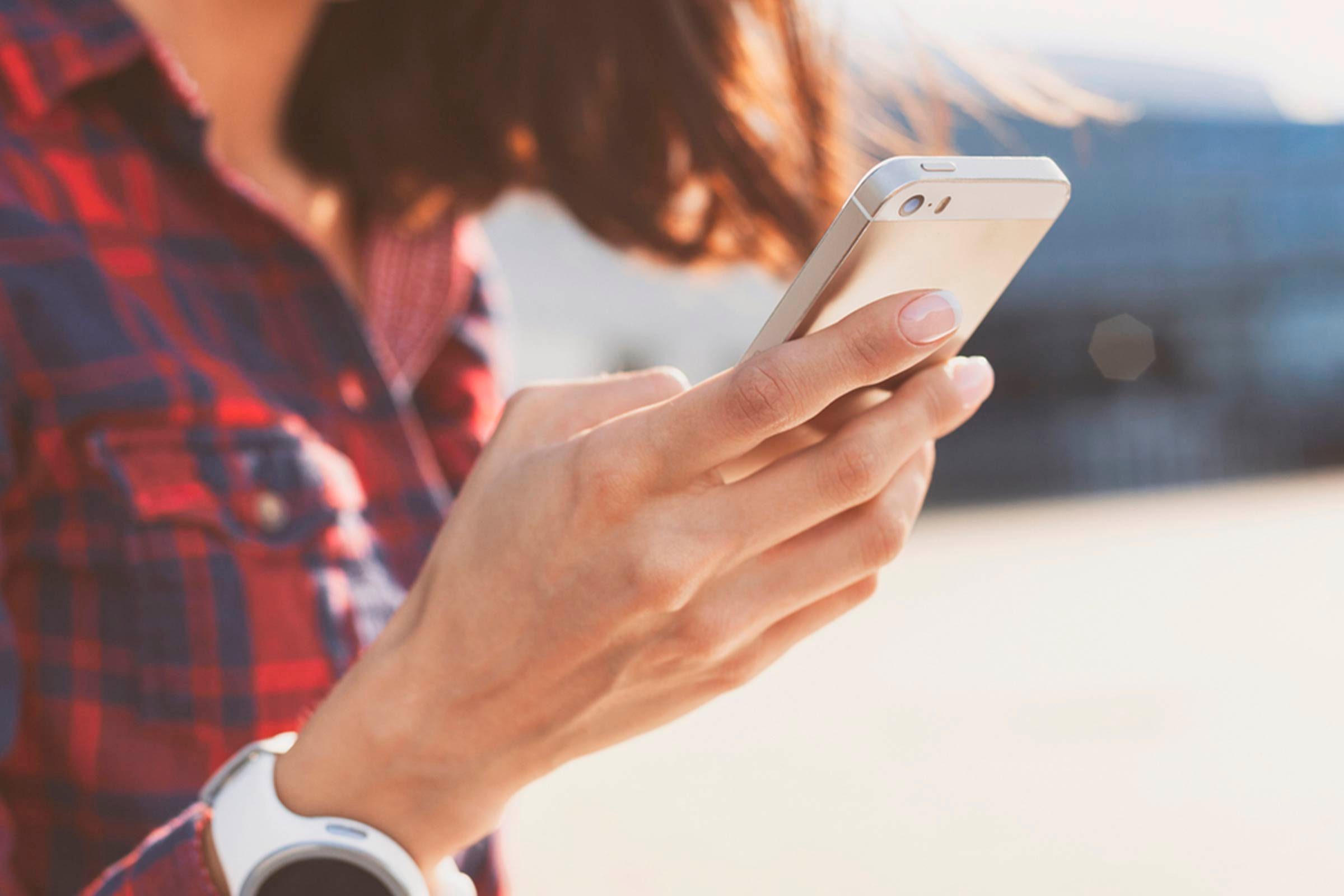
Dial down the brightness
“Turn down the brightness level of device screens to reduce blue light exposure, especially during evening hours,” Alpert says. This will lower the chances of developing eye strain and other eye issues associated with exposure to blue light.
Here are 13 things you should know about unplugging from social media.
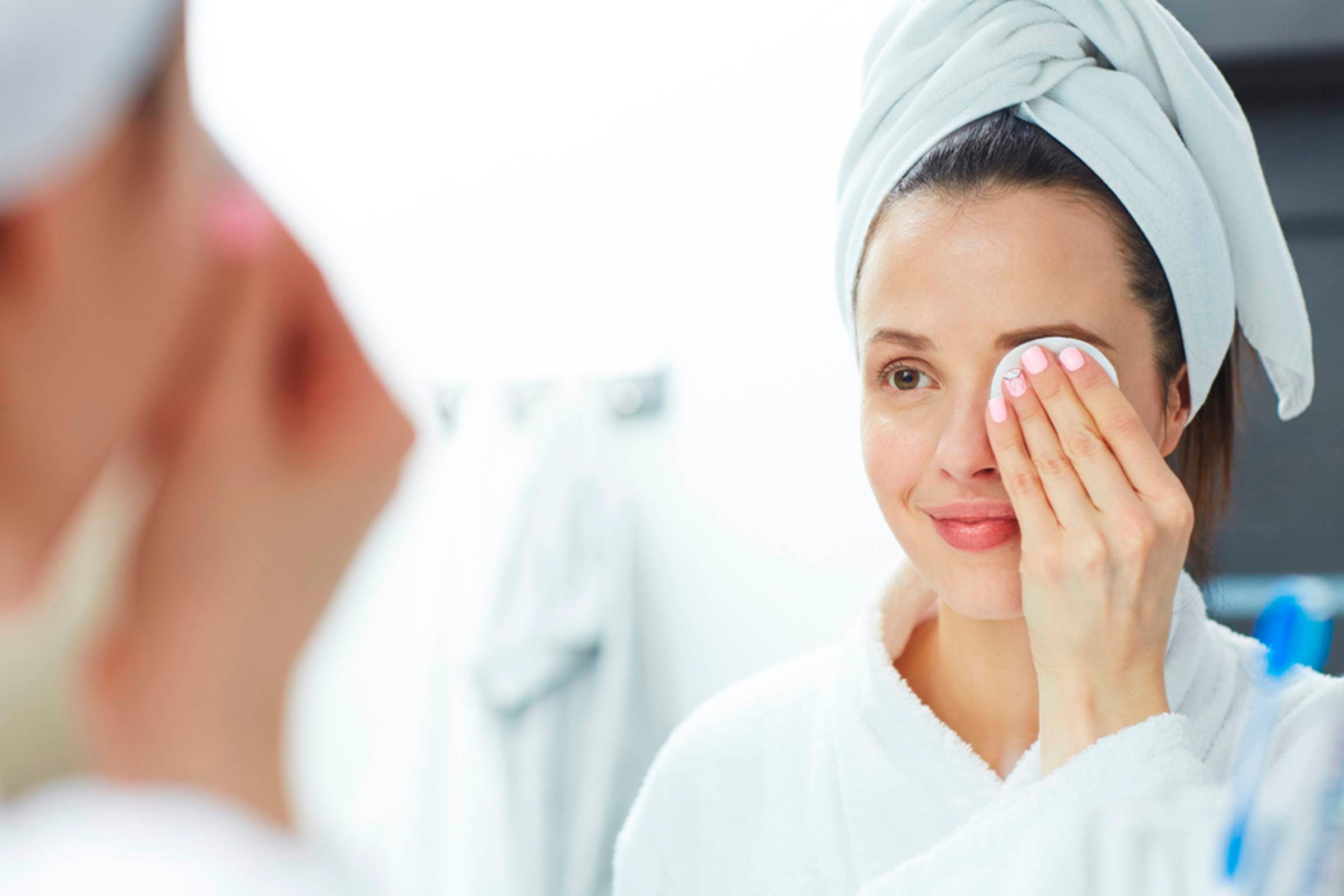
Remove your makeup before bed
Mascara, eyeliner, and eye shadow can really make our eyes pop, but they can also clog the tiny oil glands at the base of our eyelashes. “This can lead to irritated, red, and watery eyes, and can also make contact lenses uncomfortable,” warns Monica Nguyen, OD, an optometrist with offices in New York and New Jersey. “Take your makeup off at the end of the day before washing your face, as sleeping with that gunk on your eyelashes poses greater risk for bacteria build-up and subsequent infection,” she says. Afterward, gently run a damp Q-Tip along the top and bottom eyelid margin to remove any remaining makeup residue and help open up those glands.
Learn to spot the signs of disease that are written on your face.
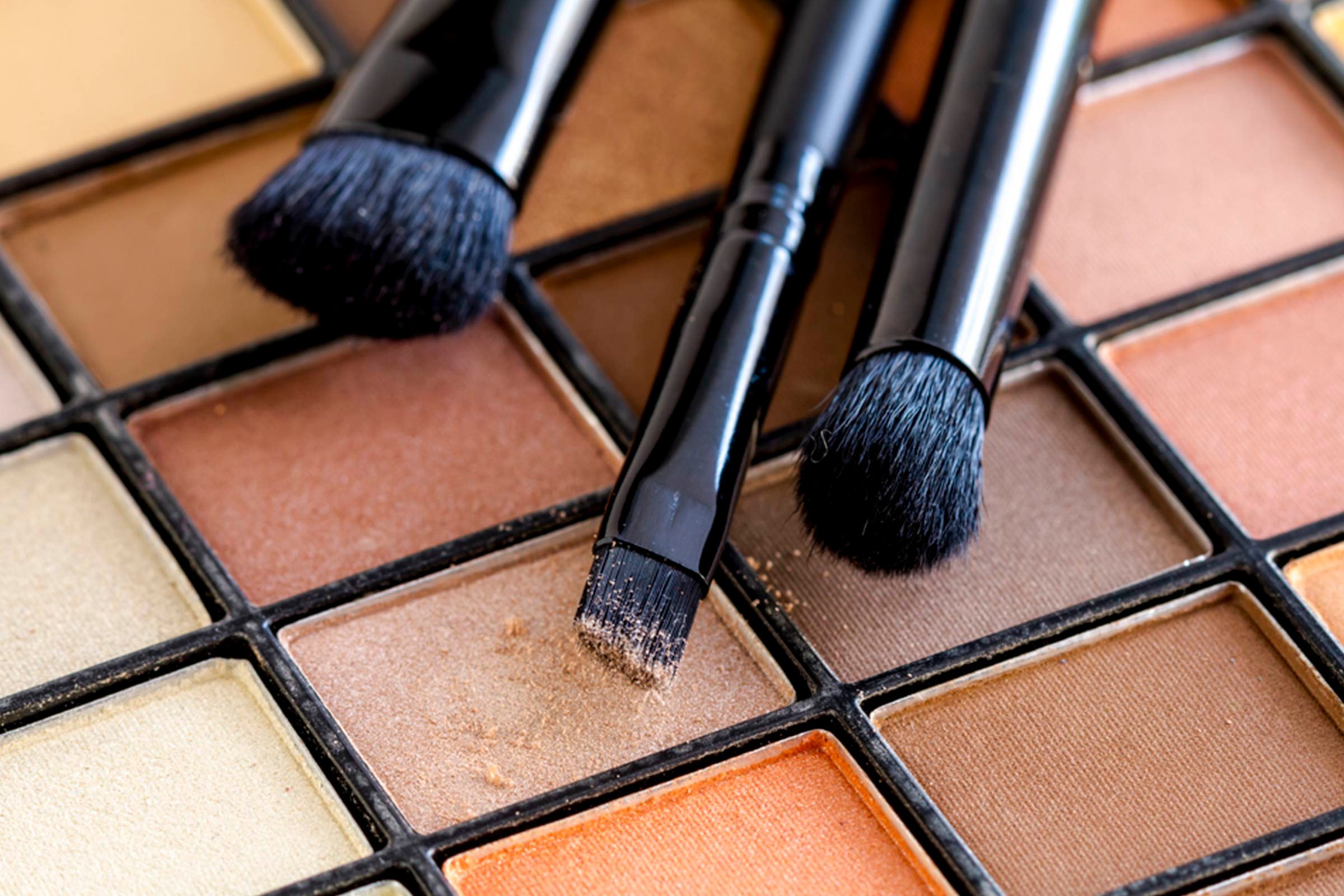
Don’t share eye makeup
Other ways to protect your eyes—without sabotaging your makeup style—include not sharing eye makeup with friends. Ever, as bacteria can easily transfer from mascara wand or eyeliner to your eye. You also need to clean your brushes regularly, and invest in new eye makeup every three months, Dr. Nguyen says. And always ditch all of your eye makeup after an eye infection.
Learn about the surprising diseases that eye exams can detect.
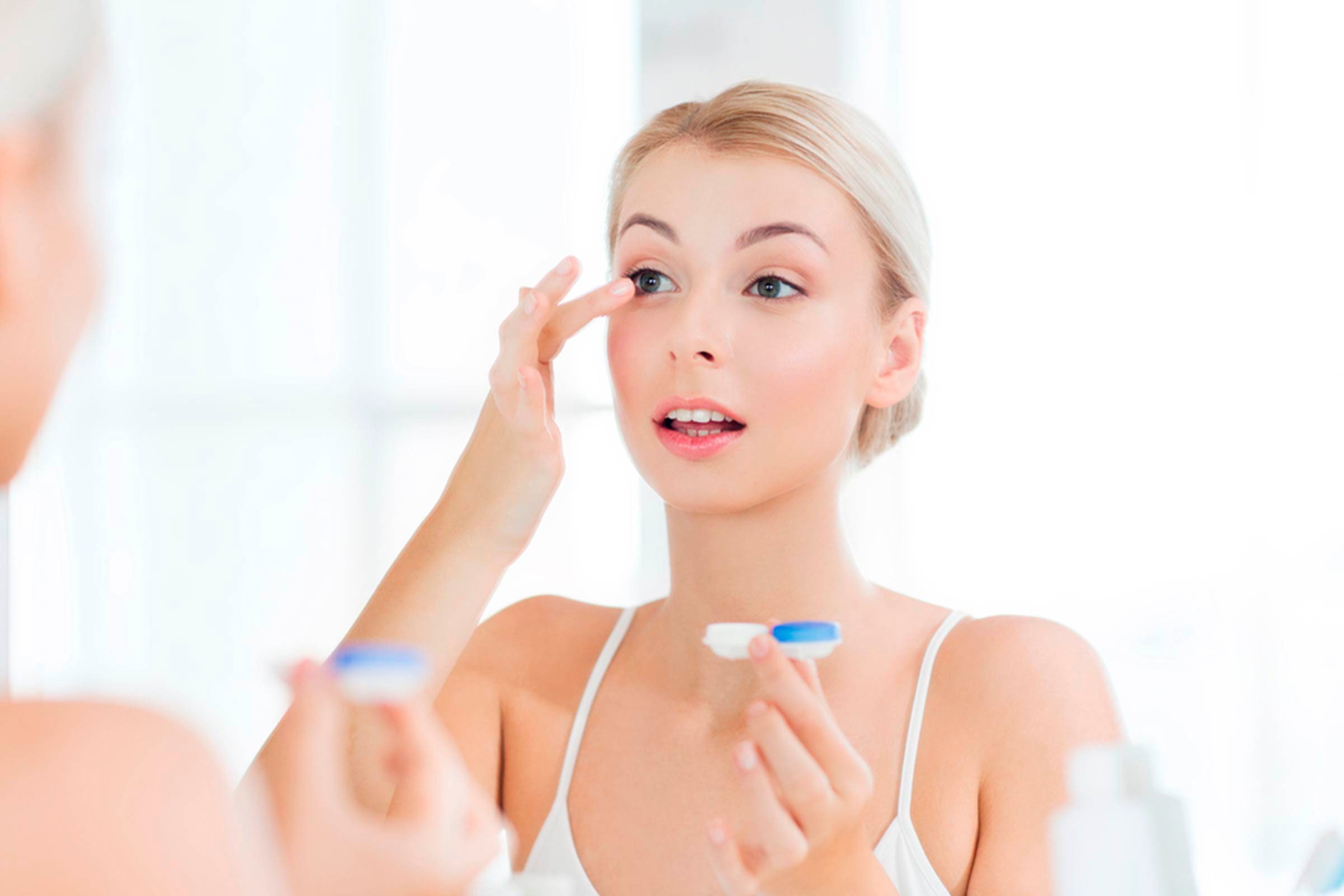
Take care of your contact lenses
“Follow simple hygiene, such as hand washing, and proper cleansing of contact lenses with contact lens cleaning solution,” Dr. Nguyen says. “For bi-weekly and monthly contact lenses, it’s important to remove the contacts at the end of the day, clean them in the palm of your hand, and allow them to sit in solution overnight.” It’s also important to clean them with the solution prior to putting them back on in the a.m. “Daily disposable contact lenses are great because you can dispose of them every day and start a fresh new pair the following day.”
Watch out for the subtle signs of a dangerous eye infection.
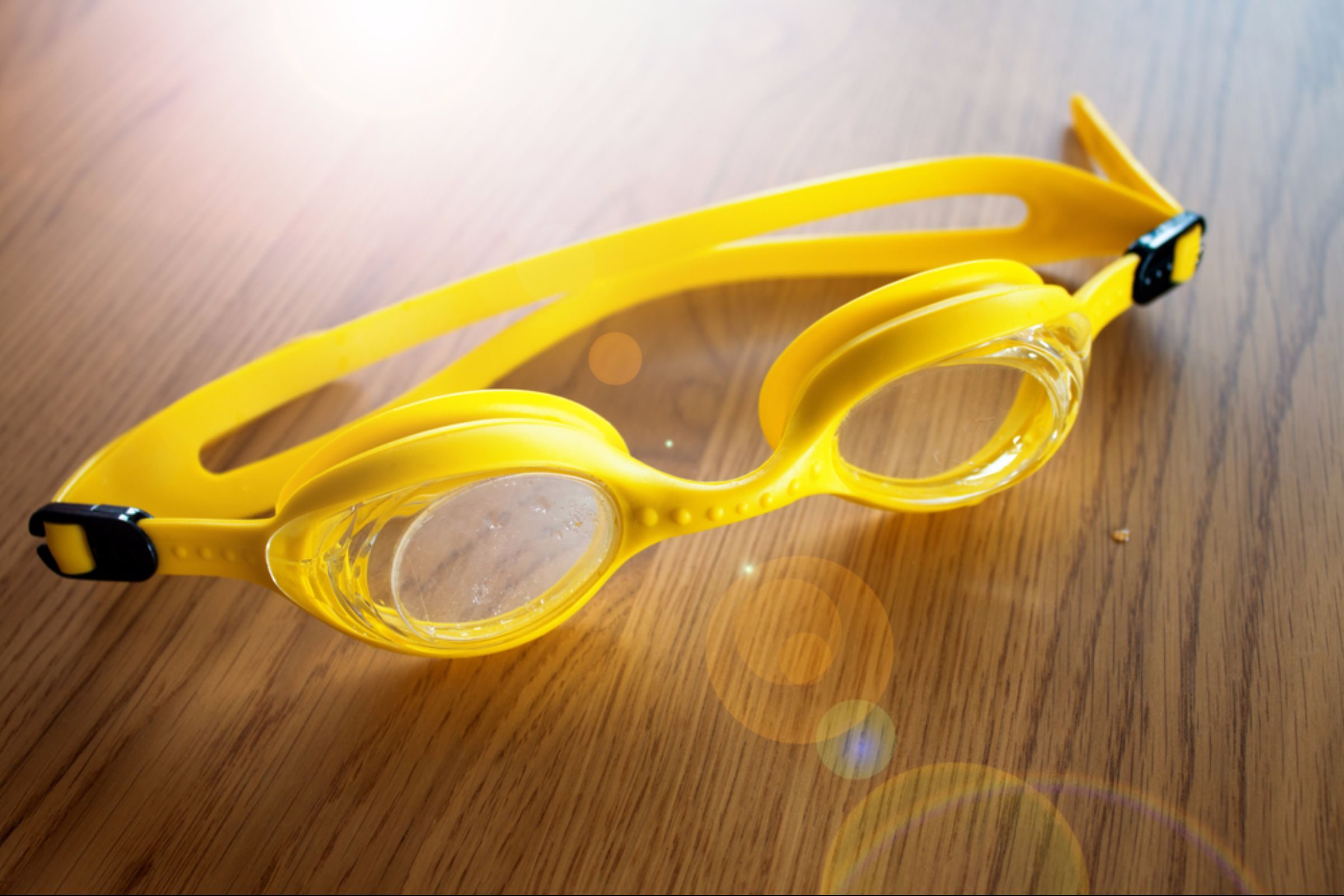
Wear goggles in the pool
Closing your eyes when you swim underwater may not be enough to protect your eyes. The same chemicals that disinfect swimming pools (chlorine and saline) can also harm your eyes, causing stinging, burning, dryness and/or redness. David Evans, PhD, MBA, executive director of Better Vision Guide, recommends wearing goggles when you go swimming. These same chemicals can also cause contact lens irritations and infections. “If you accidentally wear contacts while swimming, remove them and rinse your eyes and the contacts immediately after the swim,” Evans says.
If your eye is twitching, here’s what it could mean.
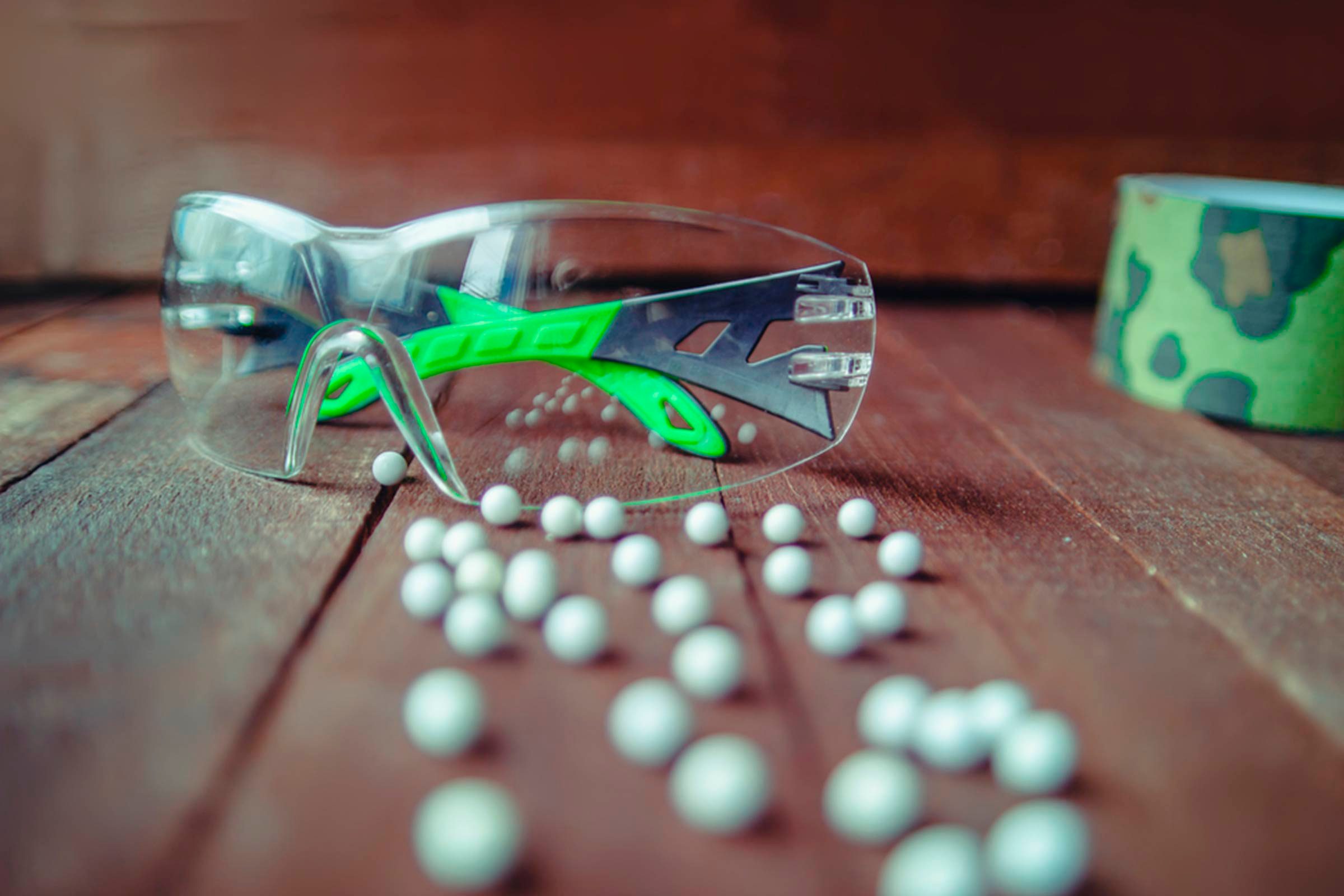
Sport eye protection during sports
It may not be sexy, but eye protection can save your vision. “Many eye injuries can occur at home or during recreational activities or sports,” Nguyen says. Avoid any harm by sporting protective eyewear, she says. “If an eye injury occurs, even if it appears minor, visit your optometrist or ophthalmologist right away for proper treatment to prevent possible vision loss and/or blindness.”
Check out the sunglasses myths that could ruin your eyes.
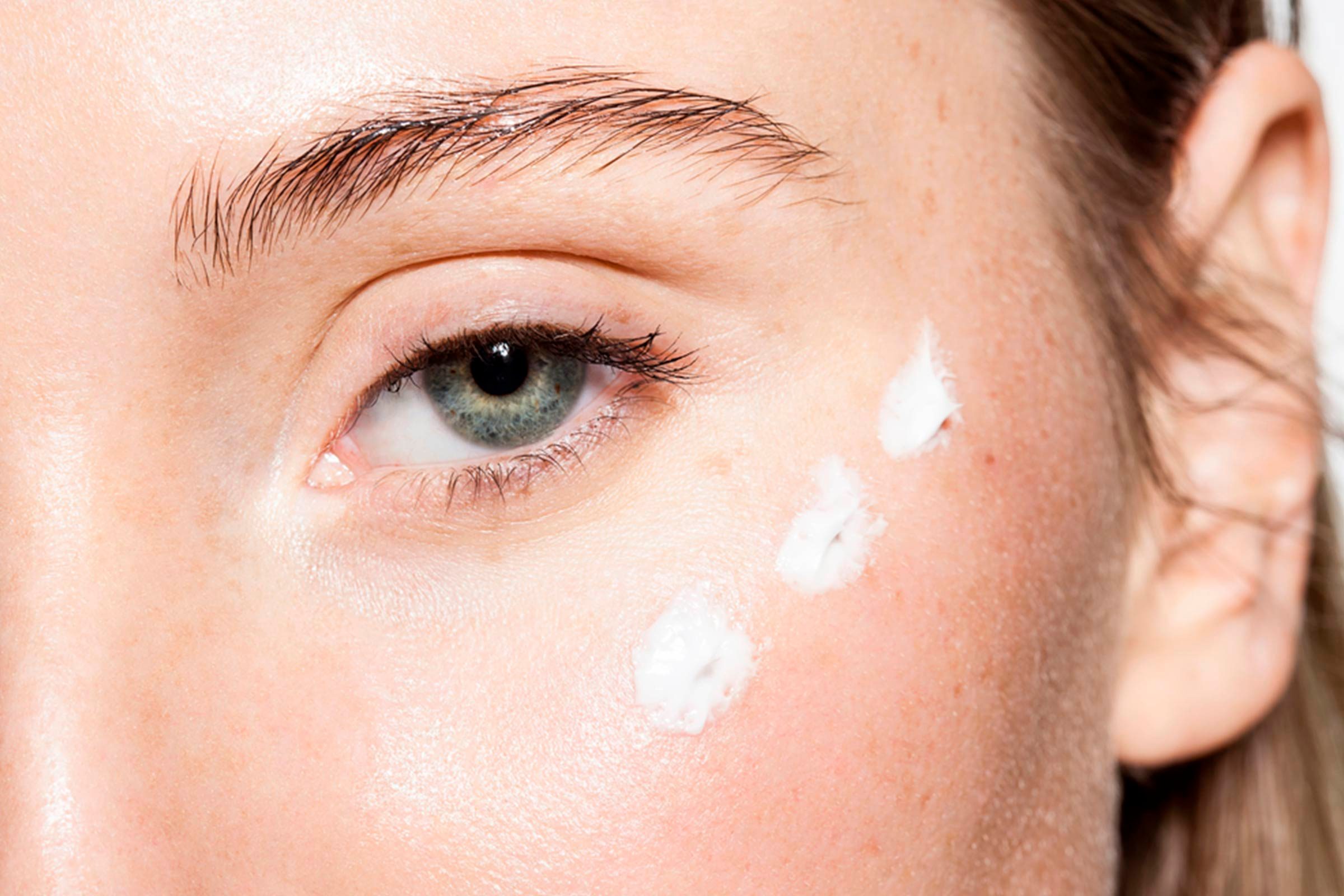
Use sunscreen around your eyes
Research out of the University of Liverpool presented at the British Association of Dermatologists’ Annual Conference found that we tend to miss about 10 per cent of our face when slathering on sunscreen, especially on and around the eyelids. This is particularly concerning as about 10 per cent of skin cancers are known to occur in this thin and sensitive area. “Apply sunscreen with an SPF of 30 or higher to all exposed skin especially on your face,” says Michele Green, MD, dermatologist at Lenox Hill Hospital in New York City.
Protect your skin by following these sunscreen tips.

Go fish
The omega-3 fatty acids found in salmon, mackerel, and other fatty fish help prevent dry eyes and keep the retina healthy, says Justin Bazan, OD, medical adviser to The Vision Council. The American Heart Association recommends eating fish (particularly fatty fish) at least two times (two servings) a week.
Here are more seafood facts that will change how you eat fish.
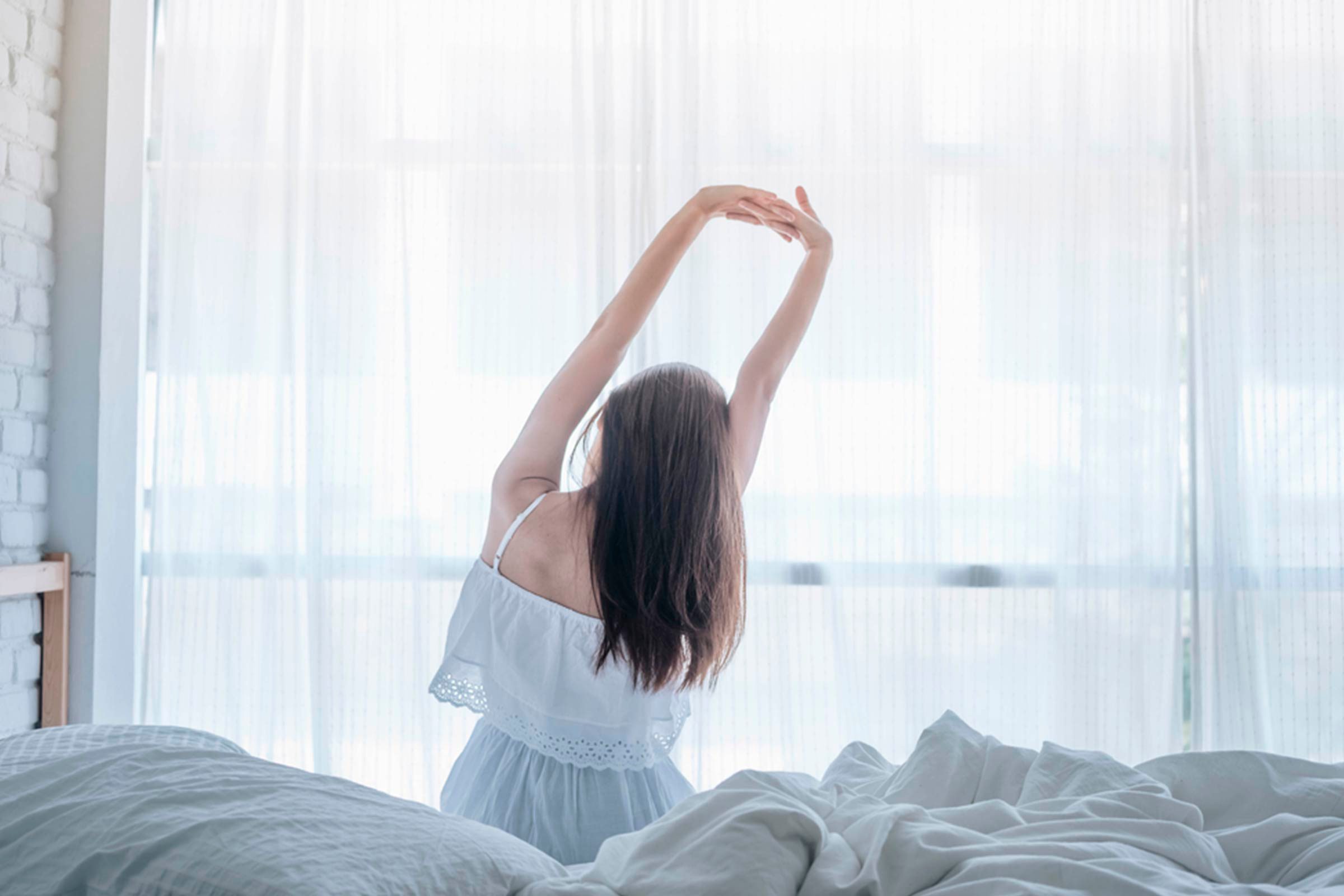
Get enough sleep
Not getting enough sleep can contribute to red eyes, Evans says. (Consider why they call flights departing late at night and arriving early the next morning “red eyes.”) Create a sleep-friendly environment by keeping your bedroom cool and dark, and using it only for sleeping and sex. If you are consistently having issues getting a good night sleep and always wake feeling tired, talk to your doctor about what may be contributing to your poor sleep.
These are the best sleeping positions for a good night’s sleep.

Order a spinach omelette for brunch
Lutein (pronounced loo-teen) and zeaxanthin (pronounced zee-uh-zan-thin) found in spinach, corn, broccoli, and eggs, can help protect your eyes from disease. These nutrients are deposited in high quantities in the retina of the eye, according to the American Optometric Association (AOA). While it is always best to get nutrients from whole foods, recent studies show health benefits from taking 10 mg a day of a lutein supplement and 2 mg/day of a zeaxanthin supplement.
These are the 13 essential vitamins your body needs to stay healthy.
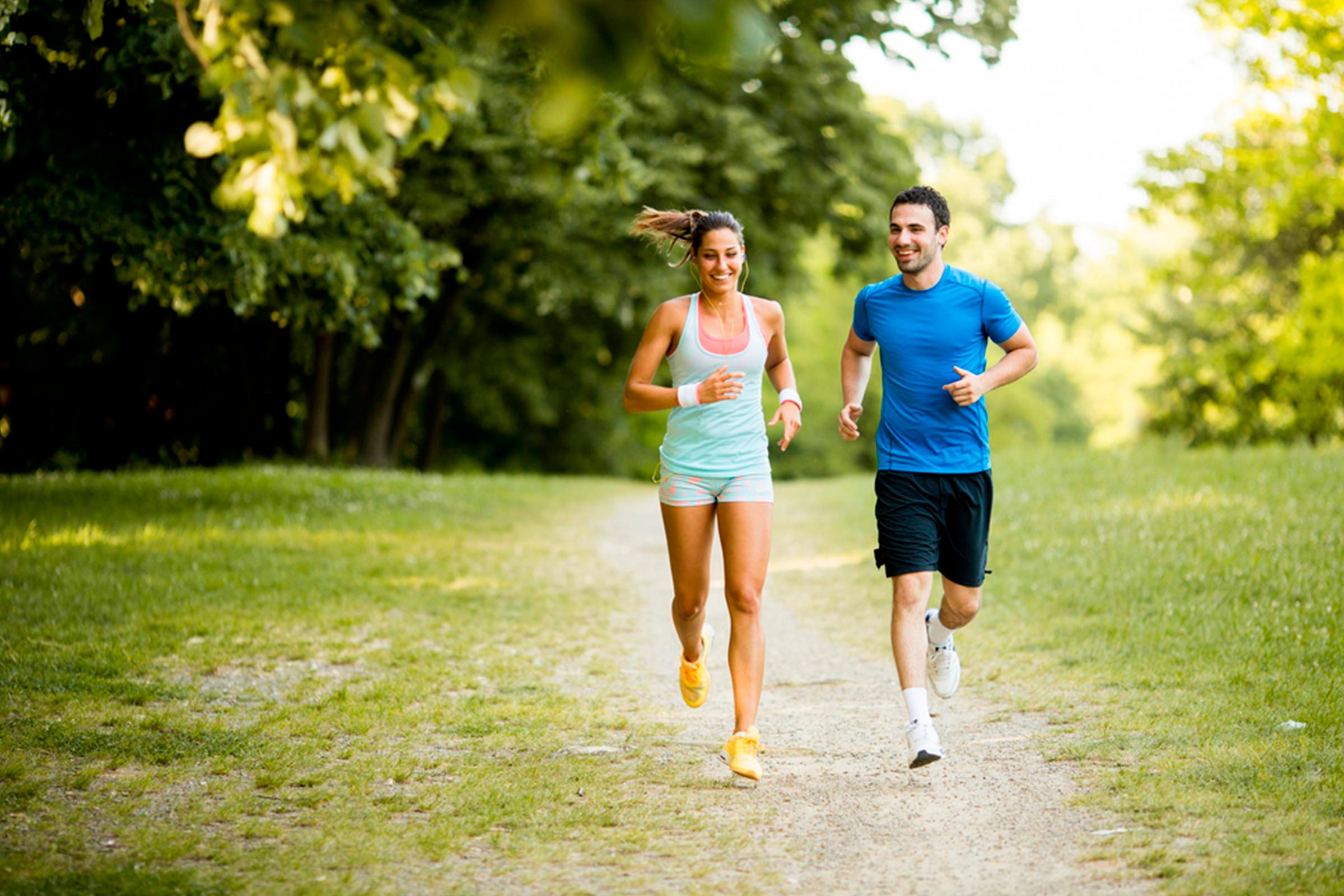
Get some exercise
Regular physical activity can improve health in general and can specifically benefit your eyes. In fact, one study out of Sweden showed that exercise could reduce cataract risk. A cataract is a clouding of the lens in the eye that affects vision. There’s more too. “Exercise staves off some of the diseases and conditions that affect vision such as diabetes and high blood pressure,” Dr. Hau says. Here’s how to improve eyesight: Aim for 30 minutes a day of aerobic activity on most days of the week, and always talk to your doctor before making any changes to your workouts.
Discover the benefits of walking 10,000 steps per day.
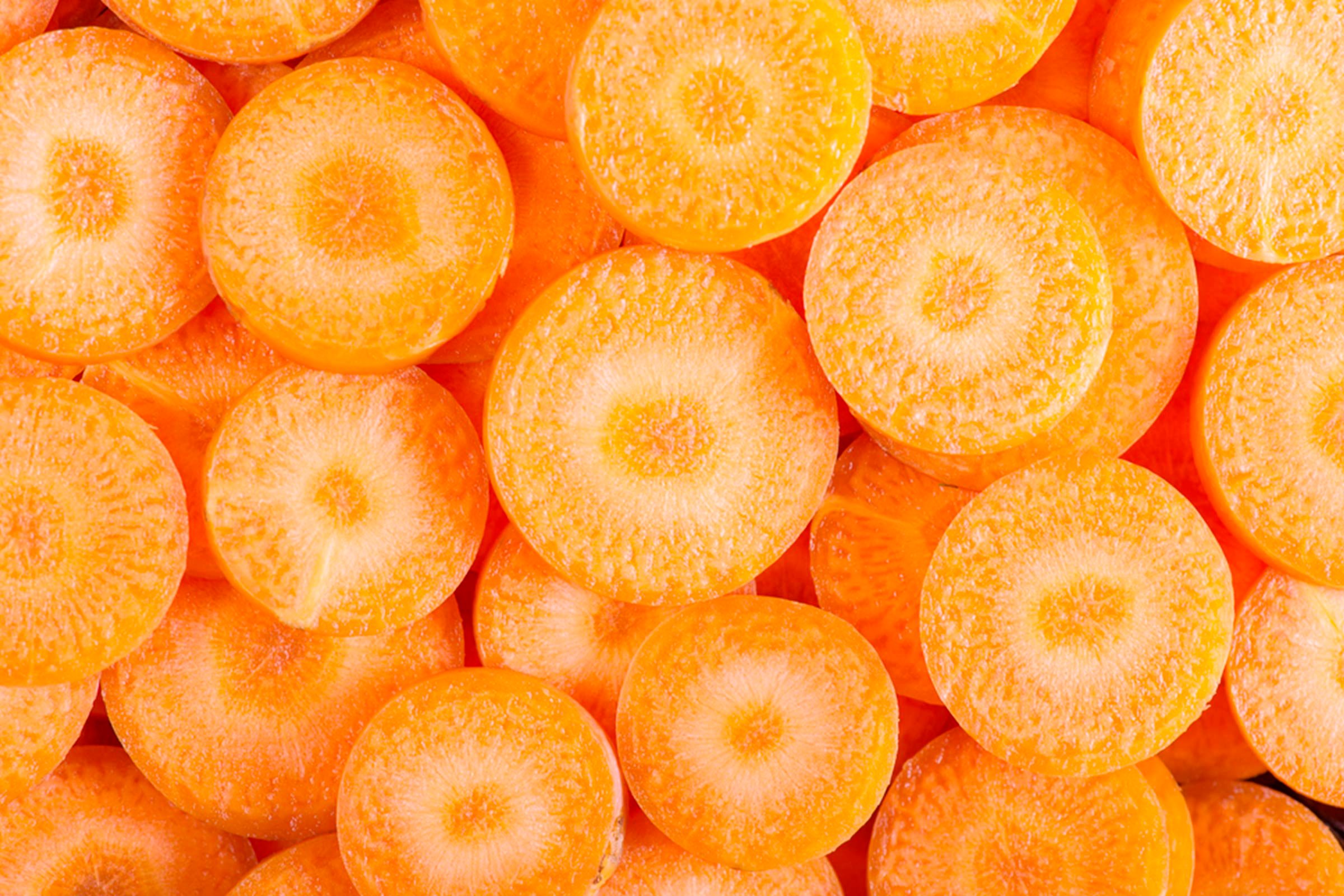
Take a cue from Bugs Bunny
Bugs Bunny was on to something—eating carrots can help you see better. “Carrots are one of many vegetables that are rich in vitamin A, which is very good for our eye health,” Dr. Hau says. Make sure carrots or other vitamin A-rich-vegetables such as bell peppers or squash are part of your diet. “Rotate them in as one of your five a day a few times a week,” he says.
Here are more foods that can improve your eyesight.
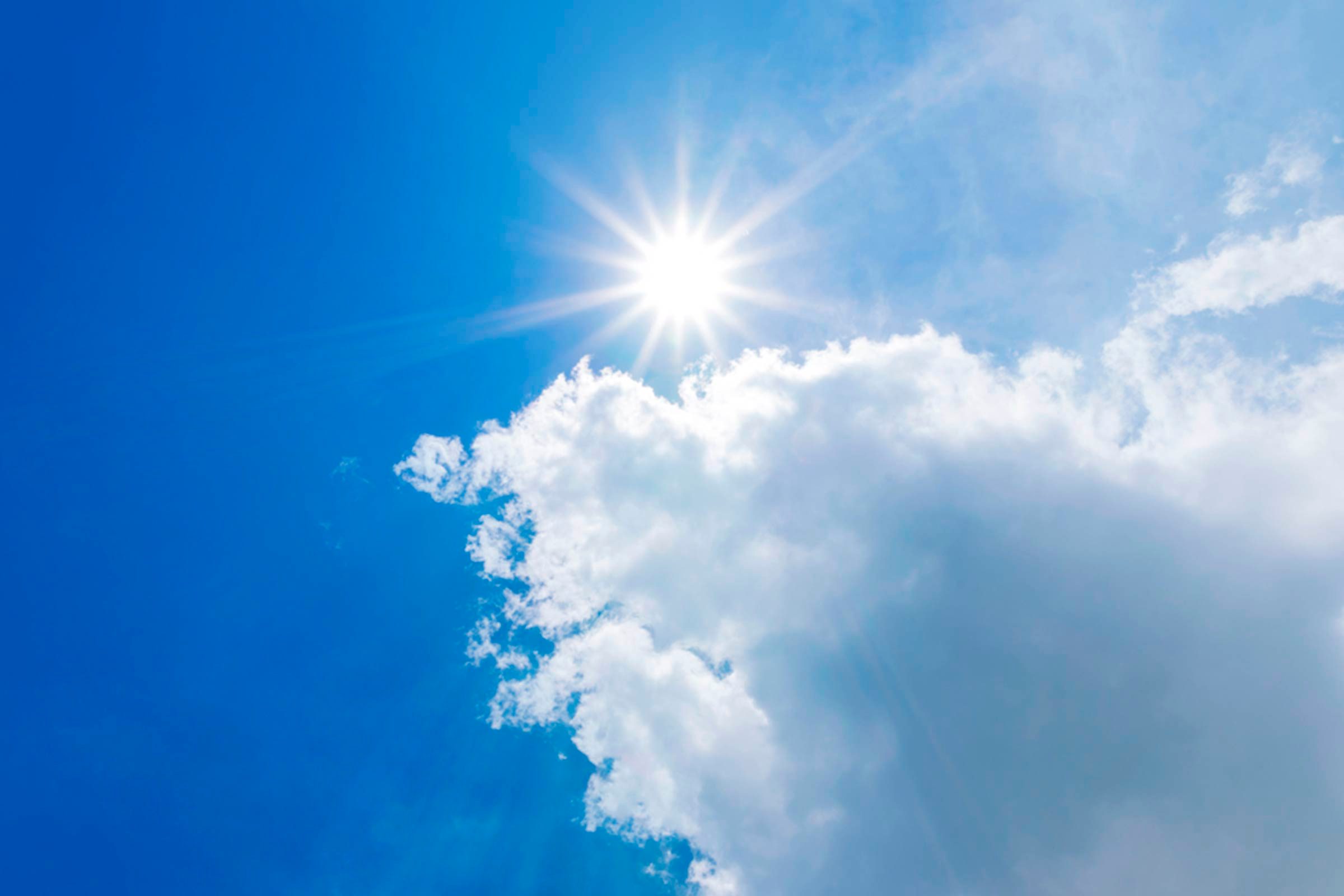
Don’t stare at the sun
Your mother was right! Staring at the sun, especially during a solar eclipse, can cause blindness. “The sun’s rays are very strong and can burn or scar your retina,” Dr. Hau says. “Never look directly at the sun and if you really want to watch an eclipse, view it on the NASA website.”
Here’s what it could mean if you have a red spot on your eye.
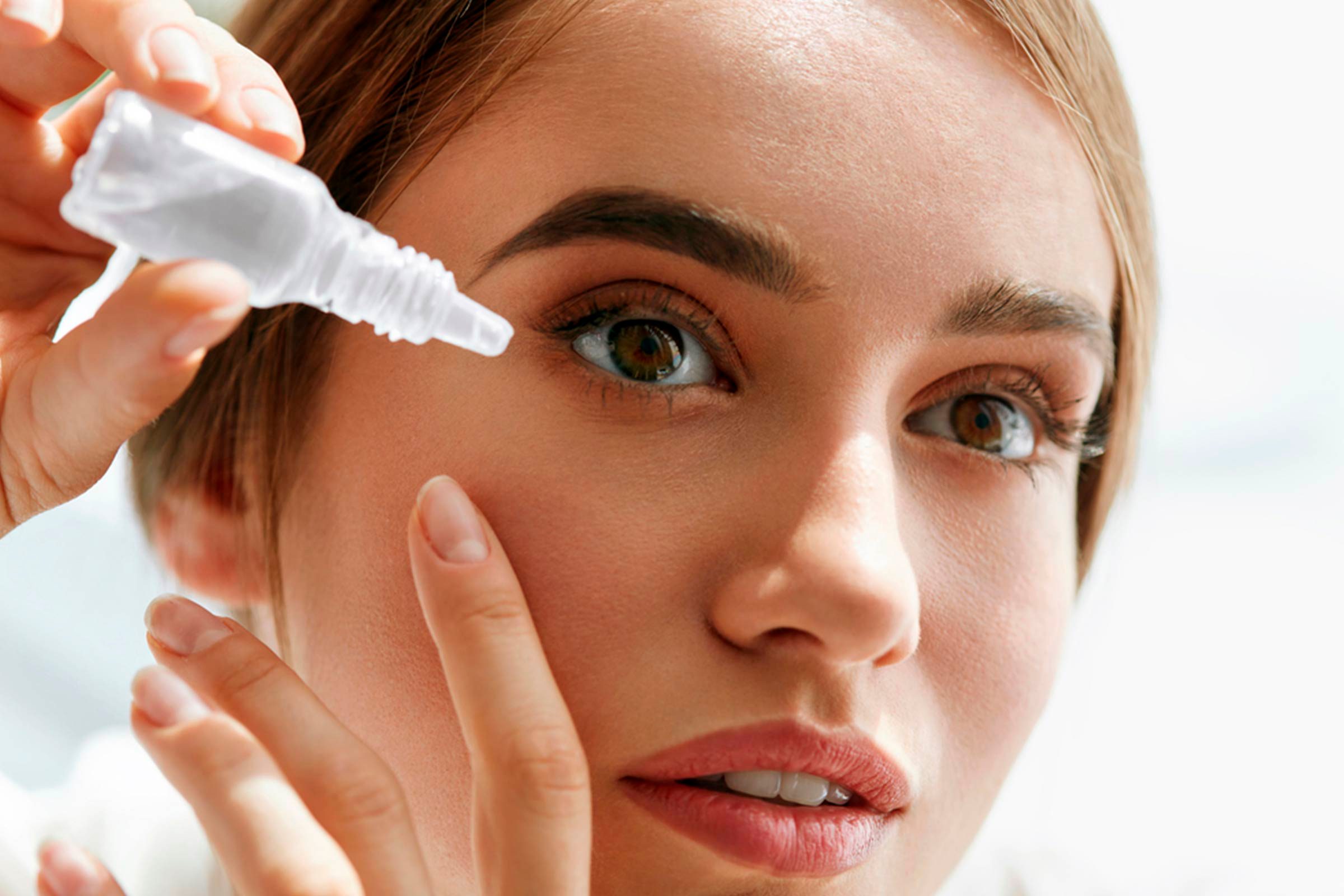
Go easy with the Visine
“Drugs like Visine that help get the red out work by constricting the blood vessels, and your blood vessels get used to it,” explains Lisa Park, MD, an ophthalmologist at Columbia Doctors and Associate Professor of Ophthalmology at Columbia University Medical Center in New York City. “If you overuse it, your blood vessels will get bigger and you need more and more Visine. It’s a vicious cycle,” she says. “Instead, try artificial tears to soothe your eyes.”
Find out the answers to the age-old question: what causes vertigo?
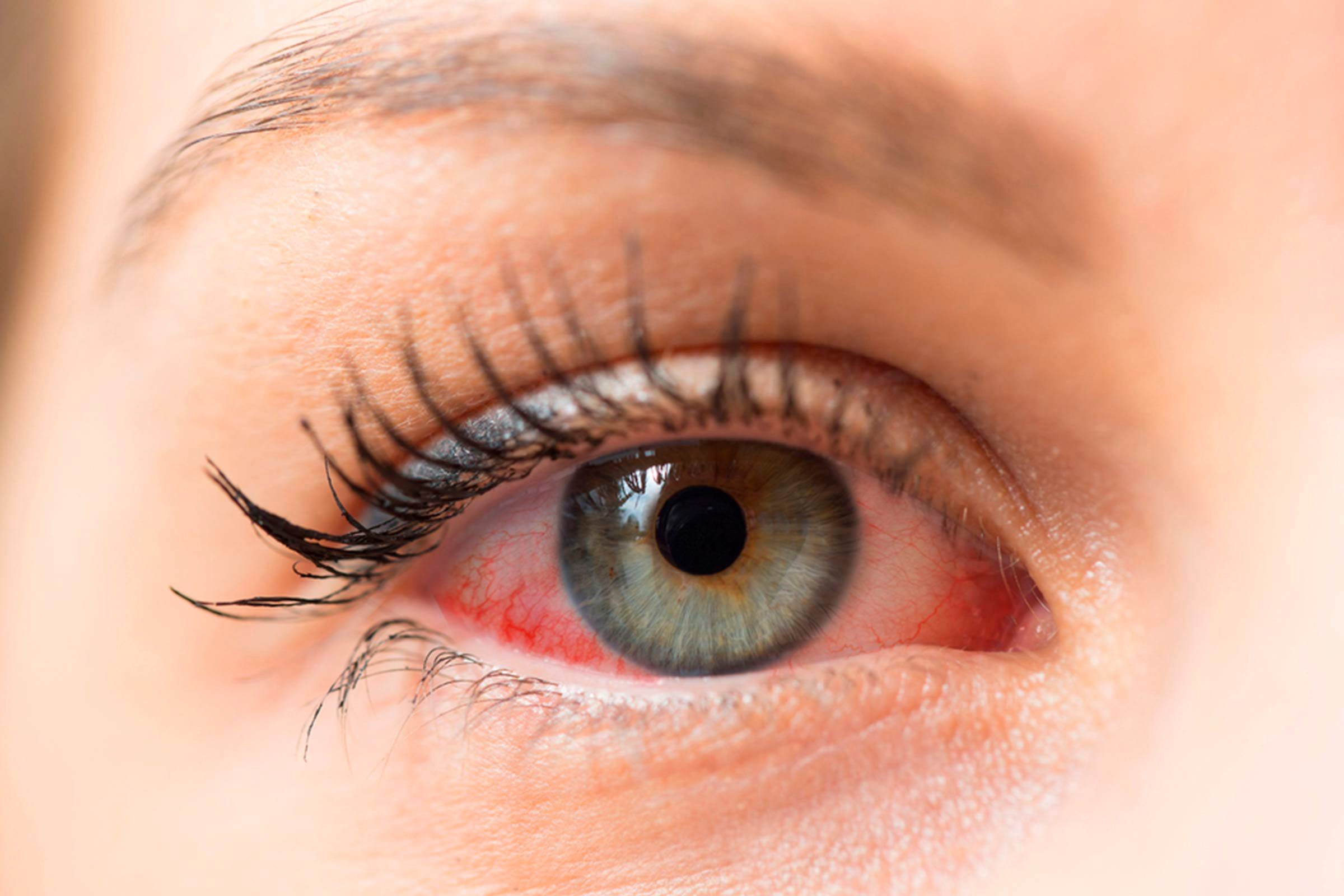
Keep allergens out
“If your eyes are itchy, it may be an allergy,” Dr. Park says. “Wash your hands before touching your eyes to keep allergens like pollen out.” Check in with an allergist to see what may be causing your symptoms, and which treatments can help keep relieve them.
Learn to tell the difference between allergies and pink eye.
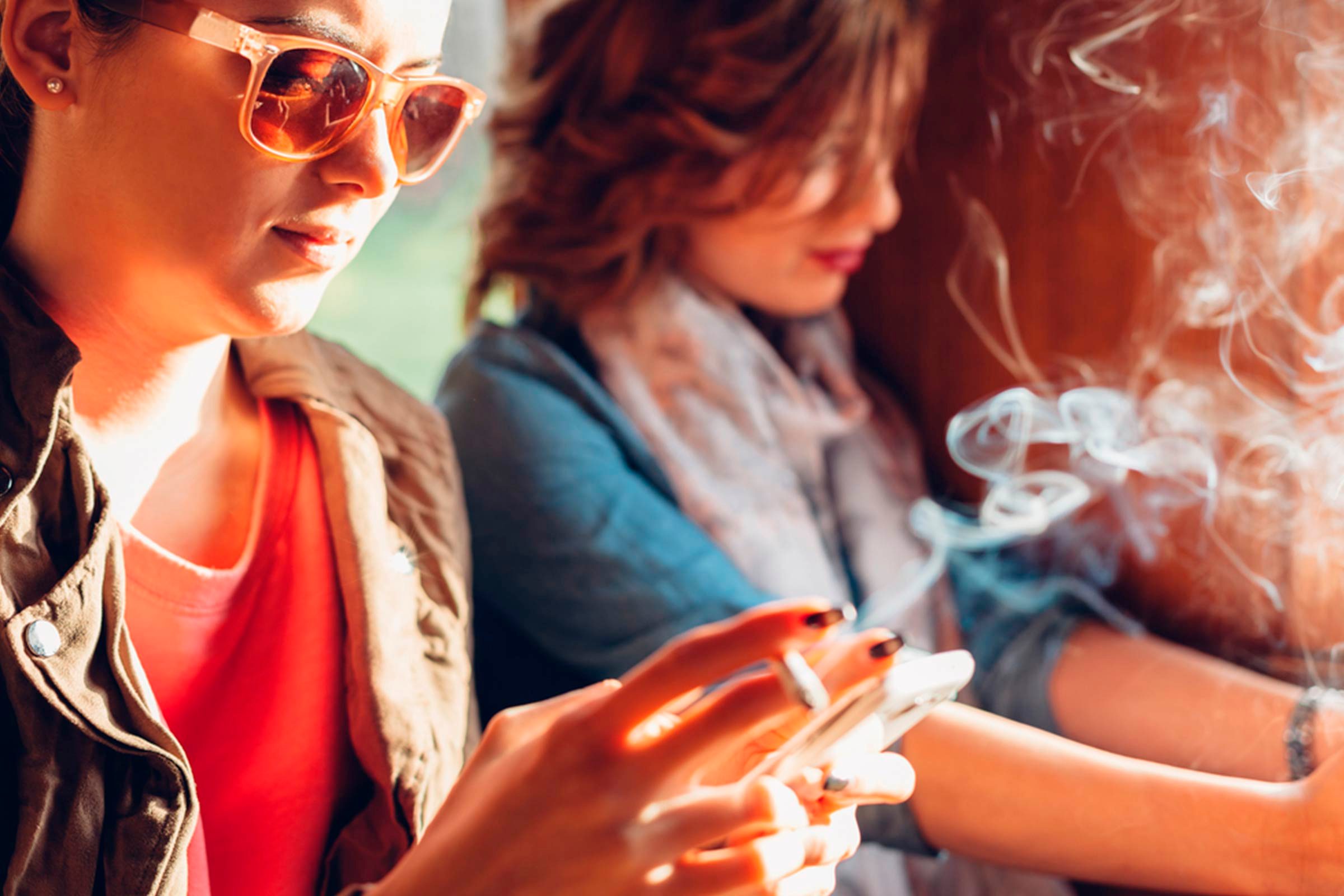
Stay away from smoke
“Smoke and other fumes can irritate your eyes,” Dr. Park says. “Avoid smoke-filled rooms or bars whenever you can and make sure to air rooms out before spending time in them.” Choose fragrance-free cleaning products when possible to cut down on the risk of eye irritation from any fumes.
Discover the subtle ways your house might be making you sick.
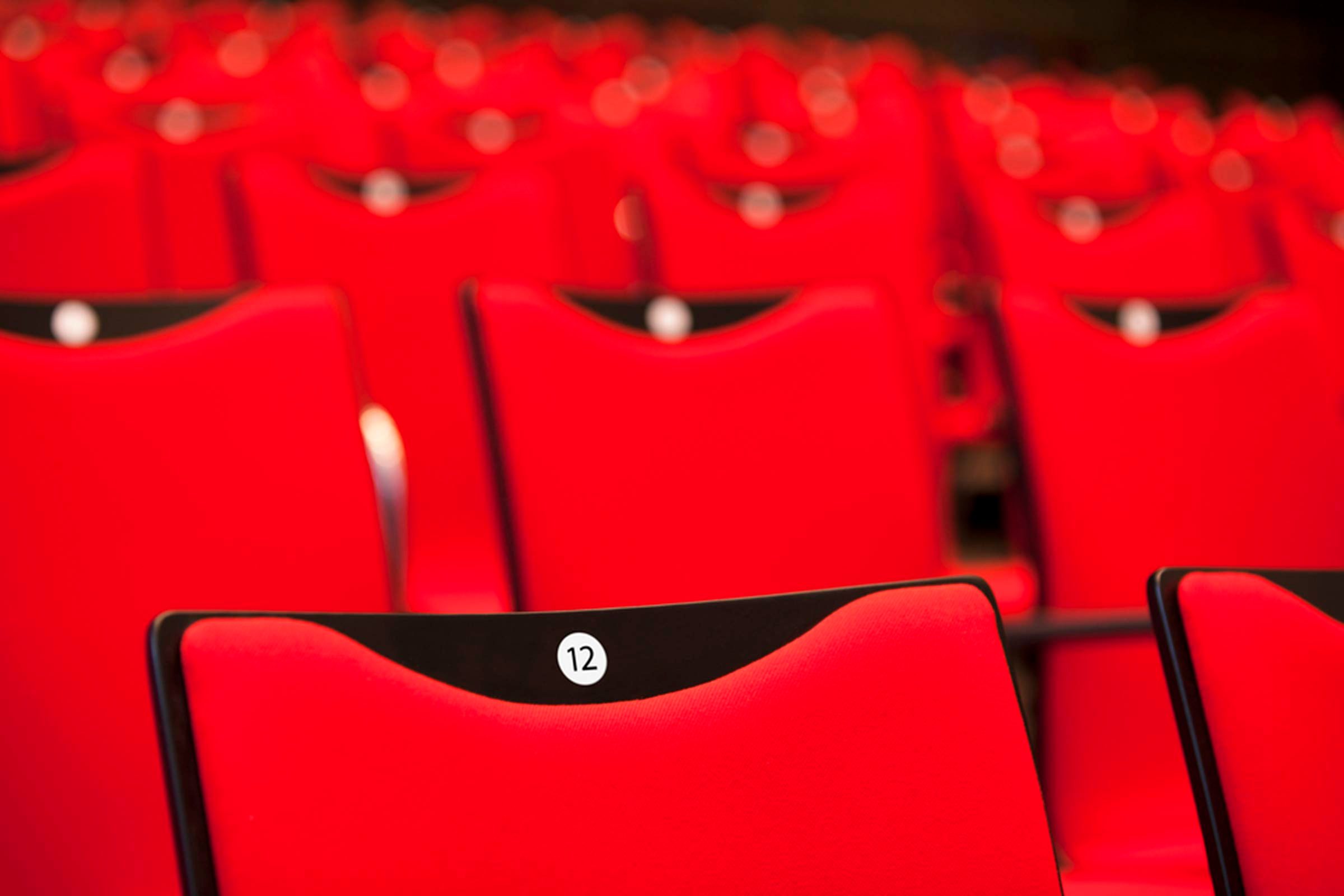
Choose your theatre seats wisely
“If you sit too close to the screen or too far away, you may get dizzy or develop a headache,” Dr. Park says. Everyone’s eyesight is different, so choose your seats accordingly.
Avoid these flat screen TV mistakes.
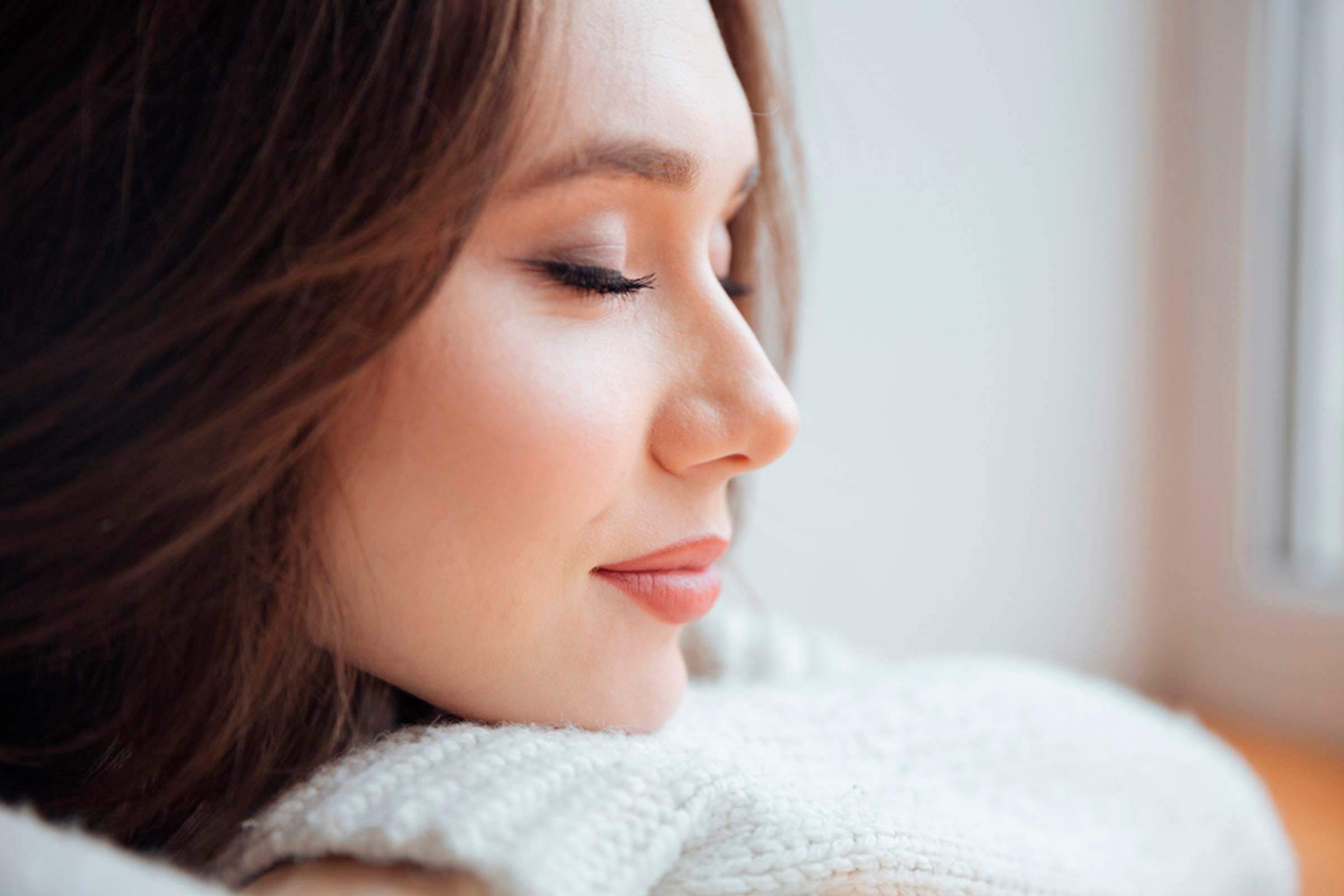
Blink
When you blink, your upper eyelid spreads tears over the front of your eye to keep it moist. “If you don’t blink enough, your cornea can dry out and feel irritated,” Dr. Park says. Every 20 minutes, look 20 feet away for 20 seconds and blink naturally.
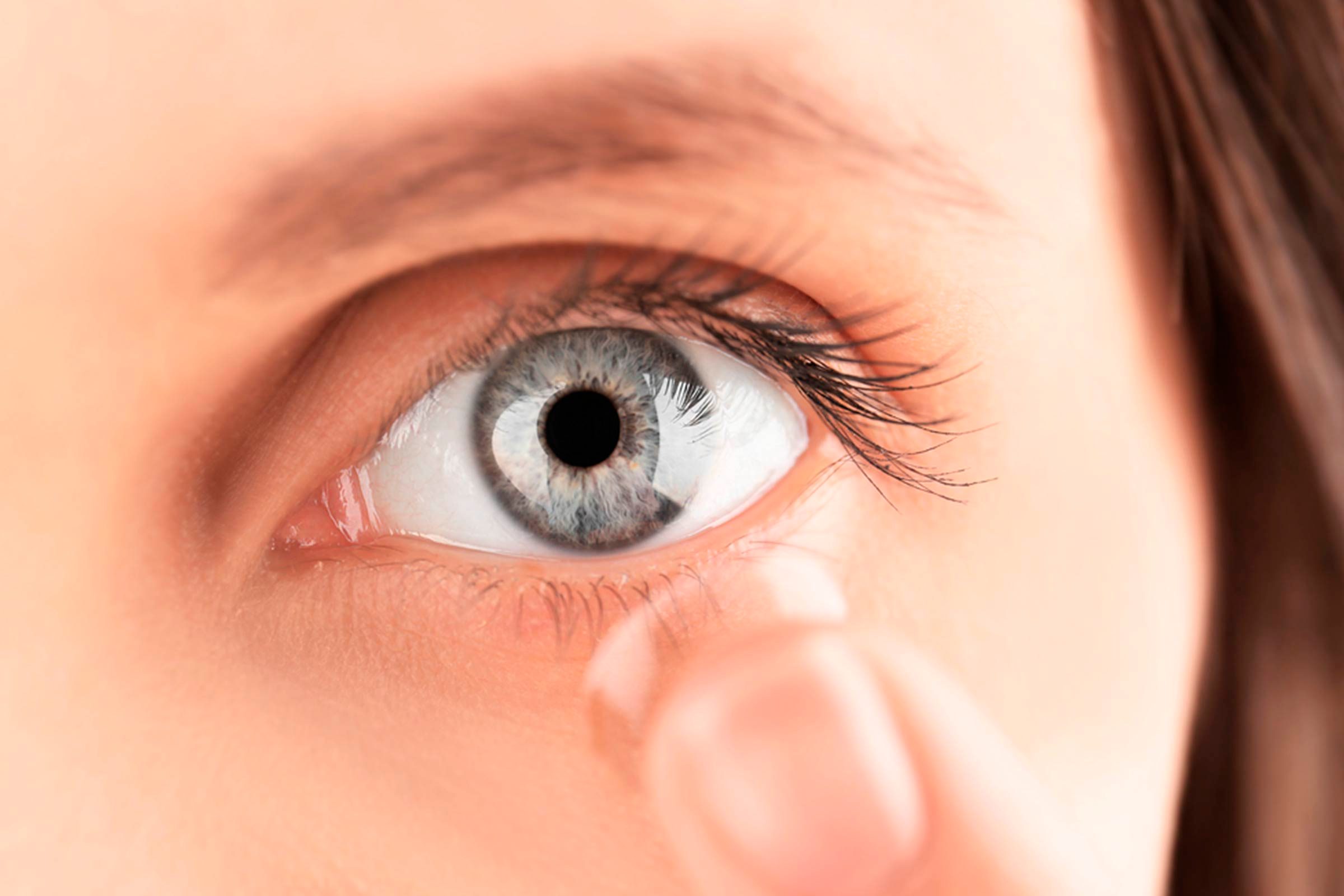
Don’t share lenses
“You won’t see well and your eyes will be strained,” Dr. Park says. “This isn’t a common practice but sometimes young people will swap recreational lenses that change eye colors, especially around Halloween.
You might be carrying these germ-spreading items right now.
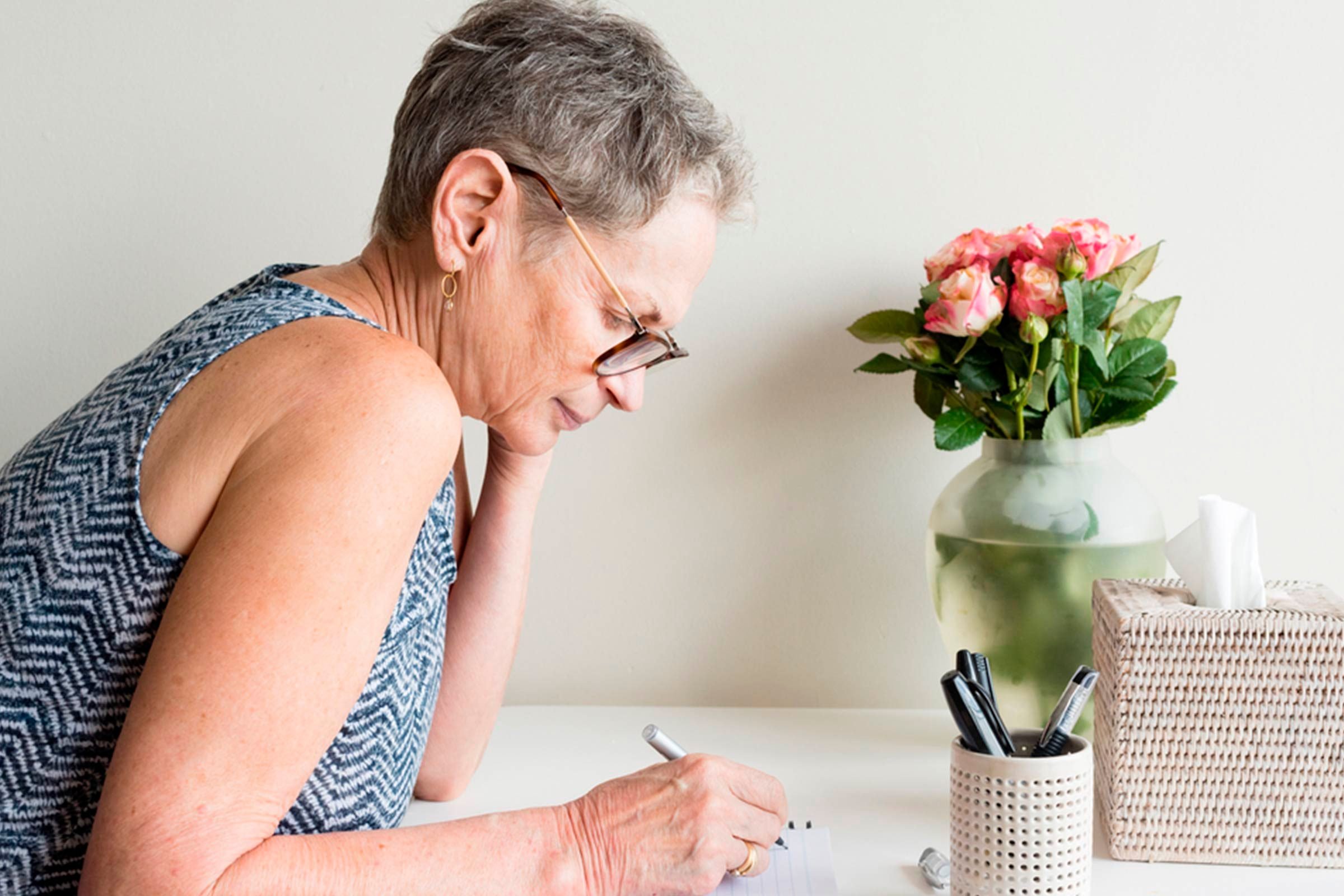
Get schooled on your family’s eye health
Knowing your family members’ eye health history will shine some light on can your own risks for certain eye diseases that may be passed down, according to the National Eye Institute. Start the conversation today.
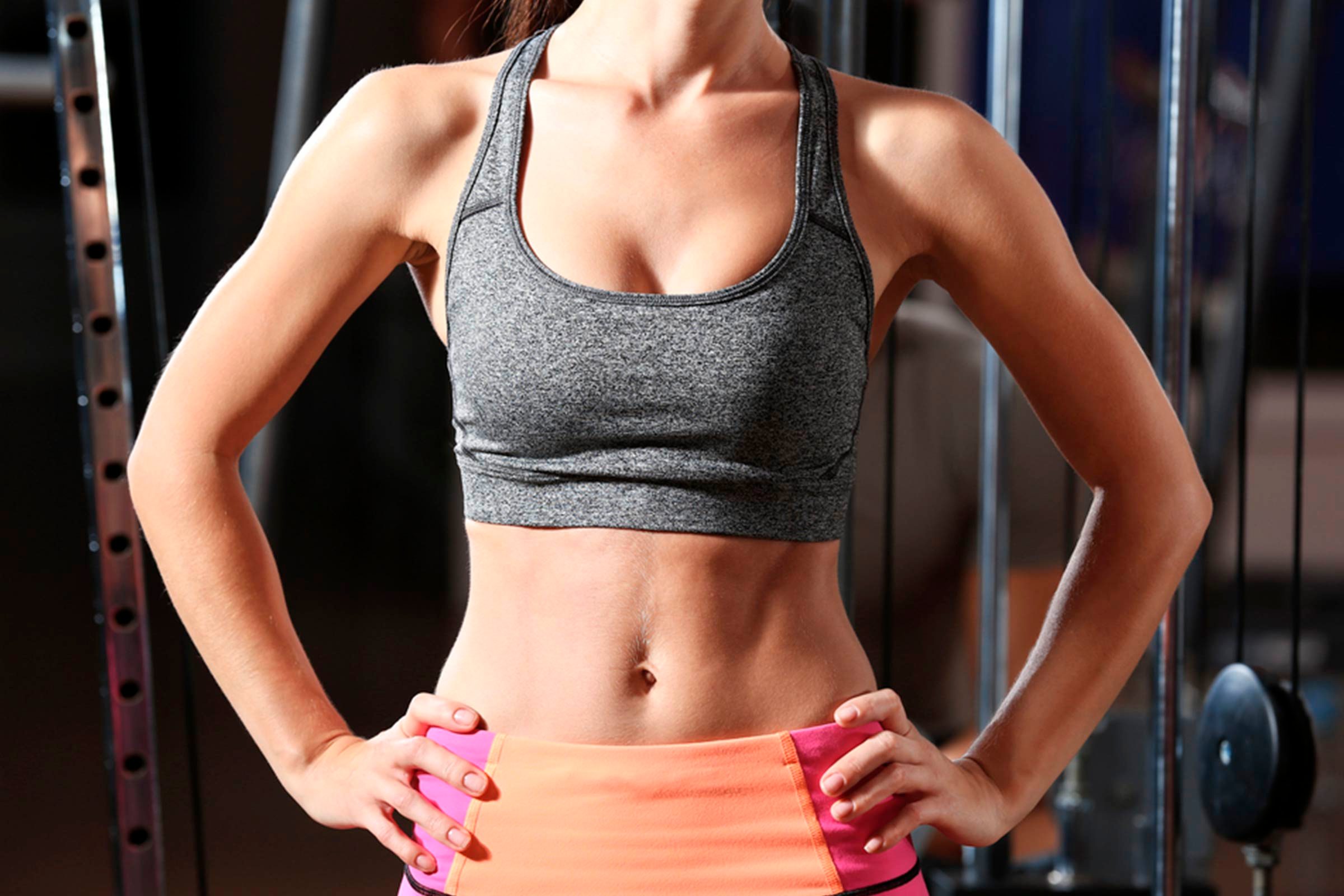
Watch your waistline
Lose weight if you are overweight, as carrying around excess pounds increases your risk of developing type 2 diabetes and other systemic conditions, which can lead to vision loss, such as diabetic eye disease or glaucoma, Evans explains.
This easy change could help you burn body fat faster.

Avoid marijuana
Regularly smoking marijuana may screw up your vision, according to preliminary results from a French study. Study participants who used marijuana at least seven times a week showed a slight delay in the signaling of their retinal ganglion cells (RGCs) on the surface of the retina. These cells receive visual information, and any delay could suggest impaired vision.
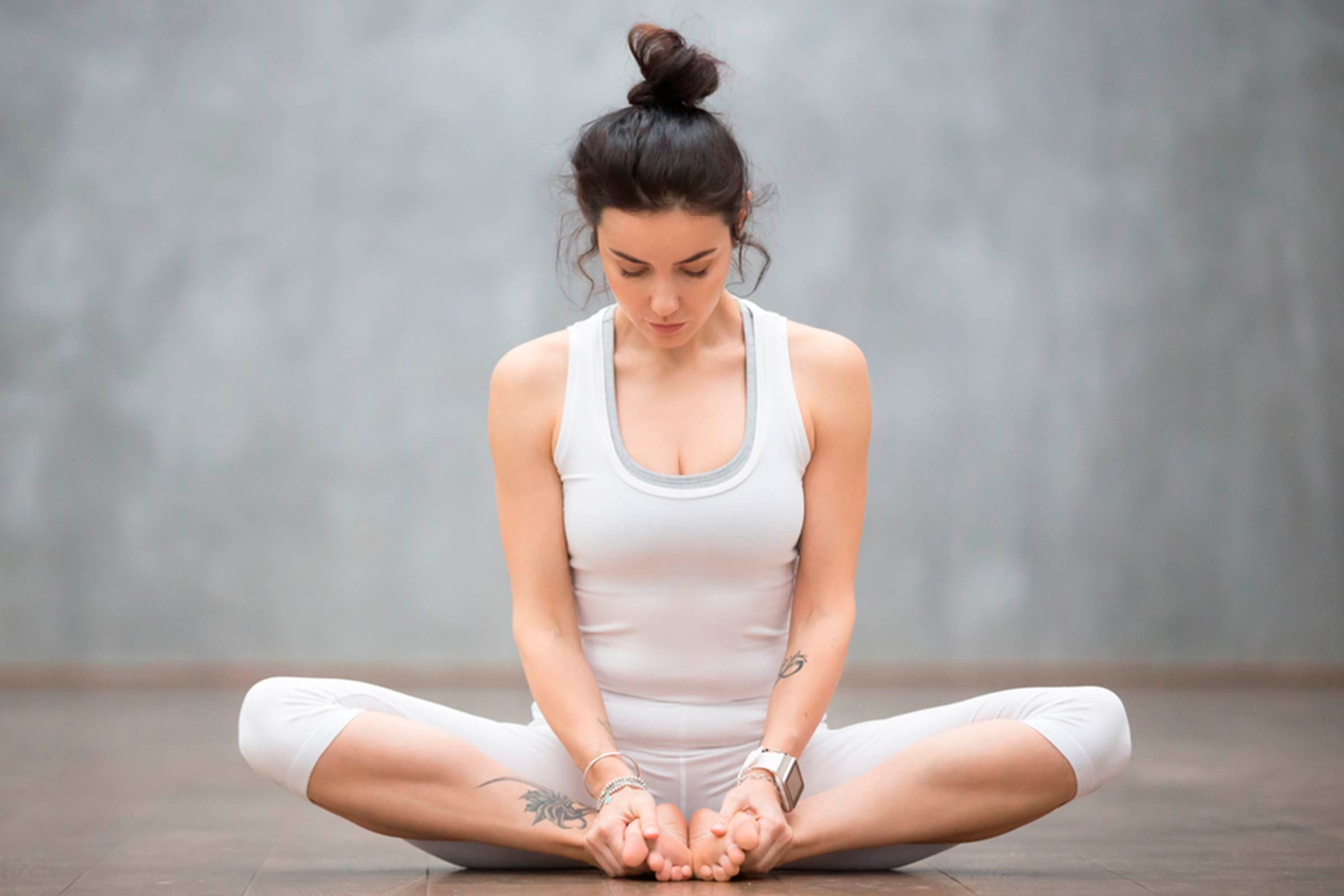
Say ohm
Practicing yoga or another form of stress reduction every day can do more than keep you calm, cool and collected, it can also save your vision. “We know that stress can strain our vision and can also get in the way of making healthy choices that will benefit our overall and vision such as eating a healthy diet and getting regular exercise,” Evans says.

Curb your sweet tooth
Eating too many refined carbs isn’t great for your overall health—and it could specifically mean trouble for your eyes. Eating high-glycemic carbs may leave eyes more vulnerable to age-related macular degeneration (AMD), according to the National Institutes of Health (NIH). The American Heart Association (AHA) recommends a maximum of about six teaspoons of added sugar a day for women and nine for men. FYI: A 12-oz can of cola has about 10 grams of added sugar.
Learn the other ways sugar could be making you sick.
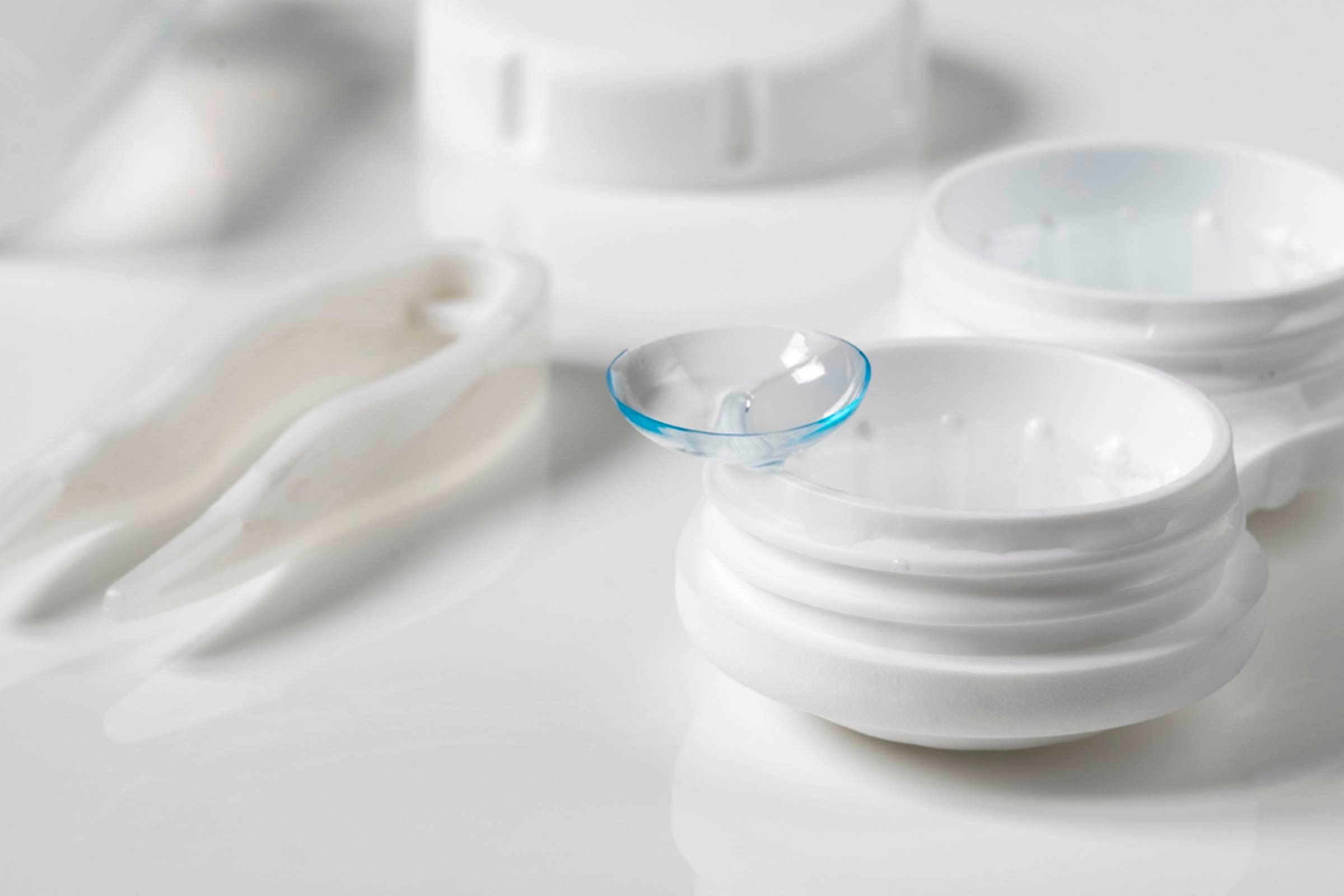
Mind your disposable lenses
Remember to take your lenses out before placing in a new set. Sounds simple enough, right? Unfortunately not everyone adheres to it. Doctors recently removed 27 contact lenses from the eyes of a woman who had been wearing monthly disposable lenses for 35 years. The findings appear in The British Medical Journal.
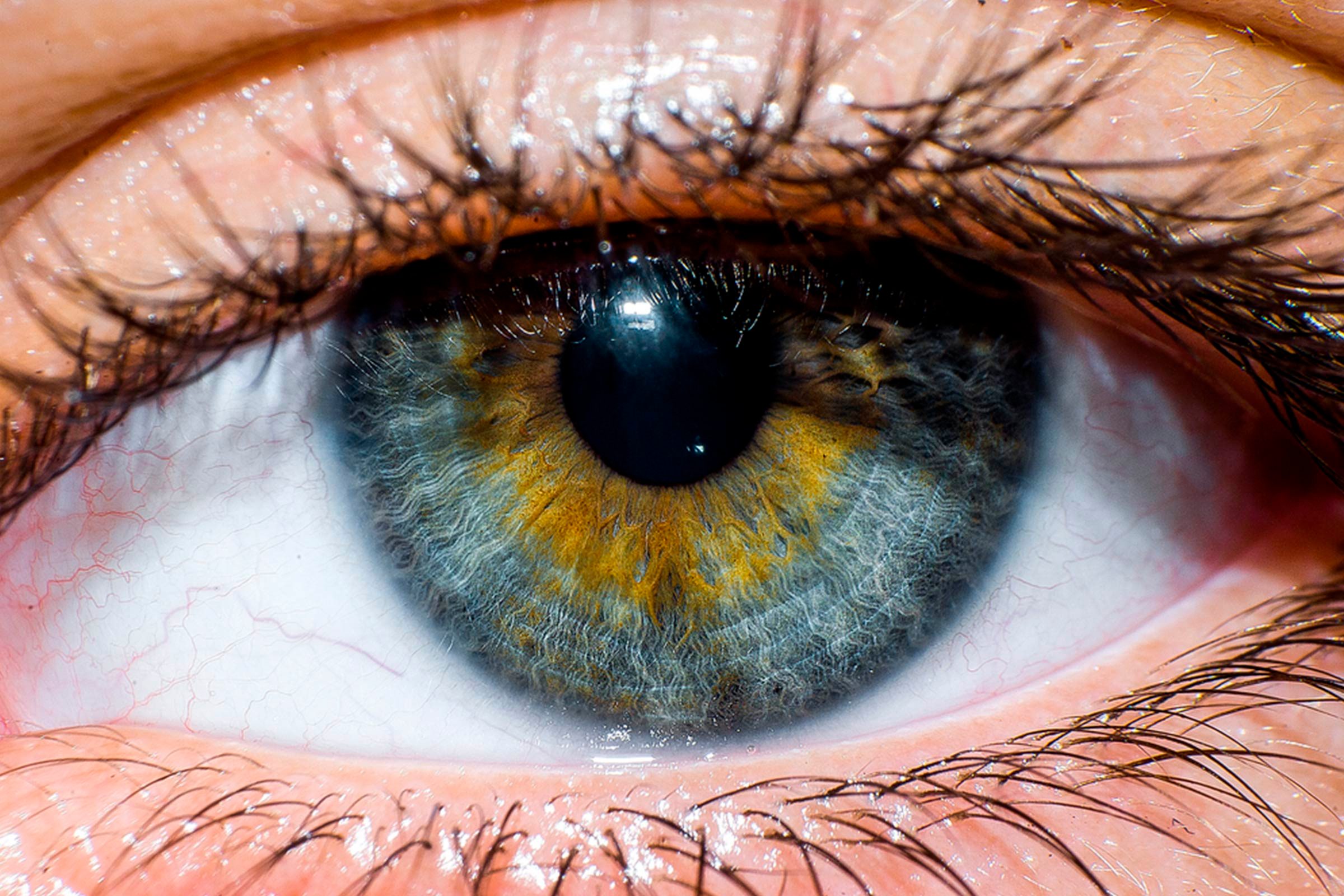
Know the warning signs of a detached retina
Retinal detachment is a medical emergency. Symptoms such as sudden or gradual increase in either the number of floaters (little “cobwebs” or specks that float around your field of vision), light flashes in the eye, or the appearance of a curtain over the field of vision, mean see a doctor ASAP, the National Eye Institute warns.
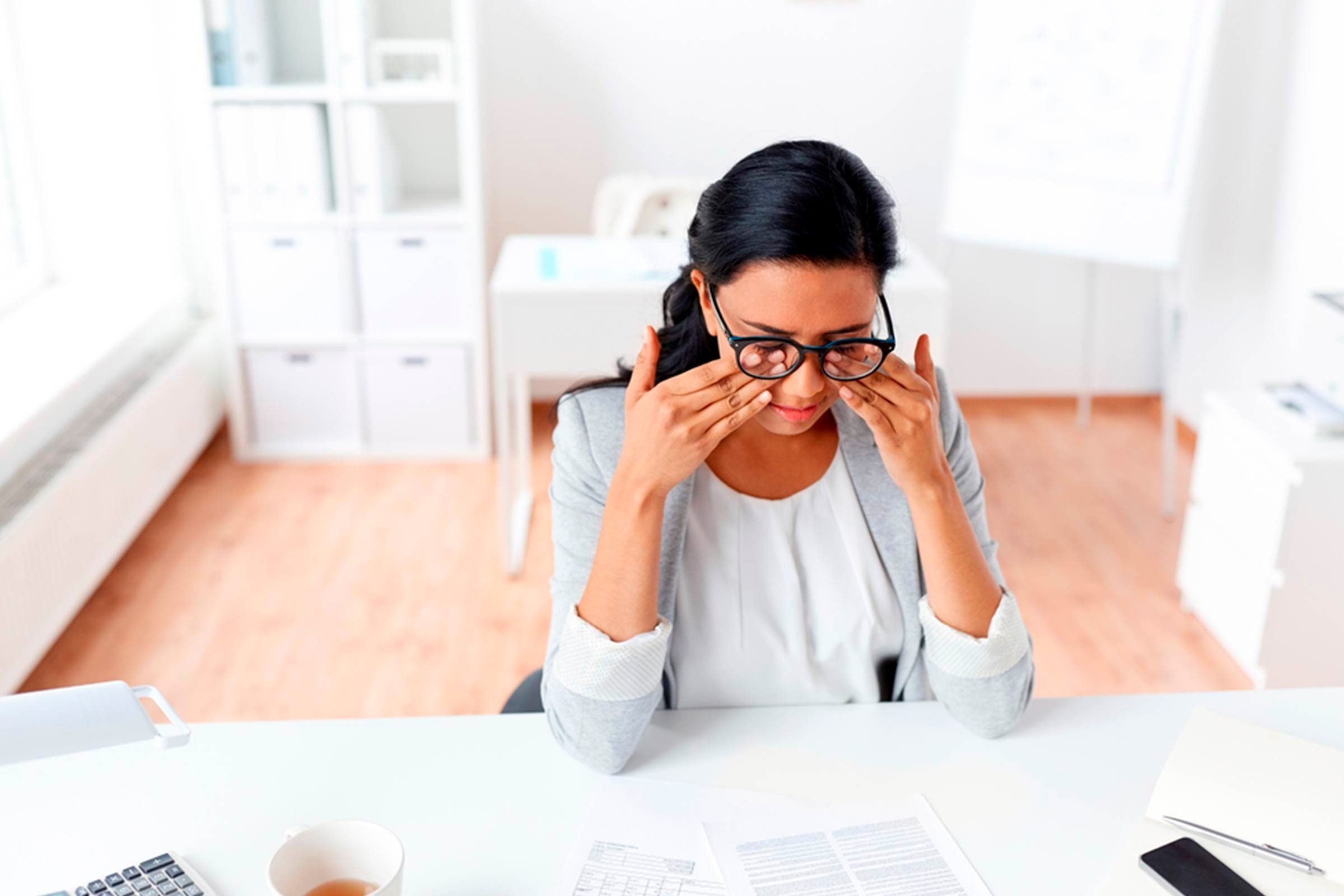
Don’t rub your eyes
Rubbing may provide instant gratification for itchy and irritated eyes, but it can actually make things worse. “Rubbing your eyes may also increase your chances of infection by further spreading whatever it is that is irritating your eyes,” Ecabs says. See an allergist or eye doctor to stop the itch safely, he says.
Next, read this collection of health studies that will change your life.